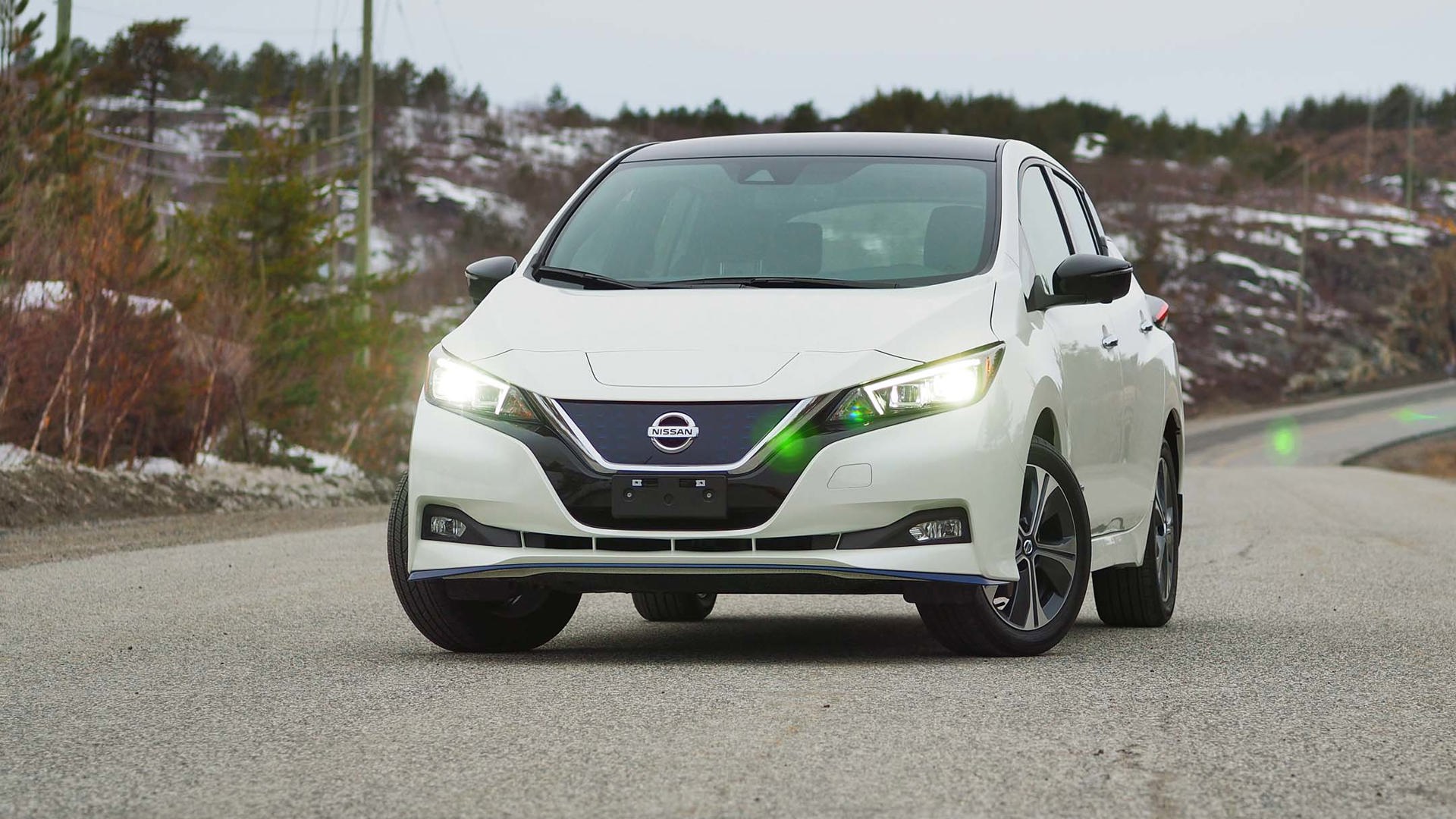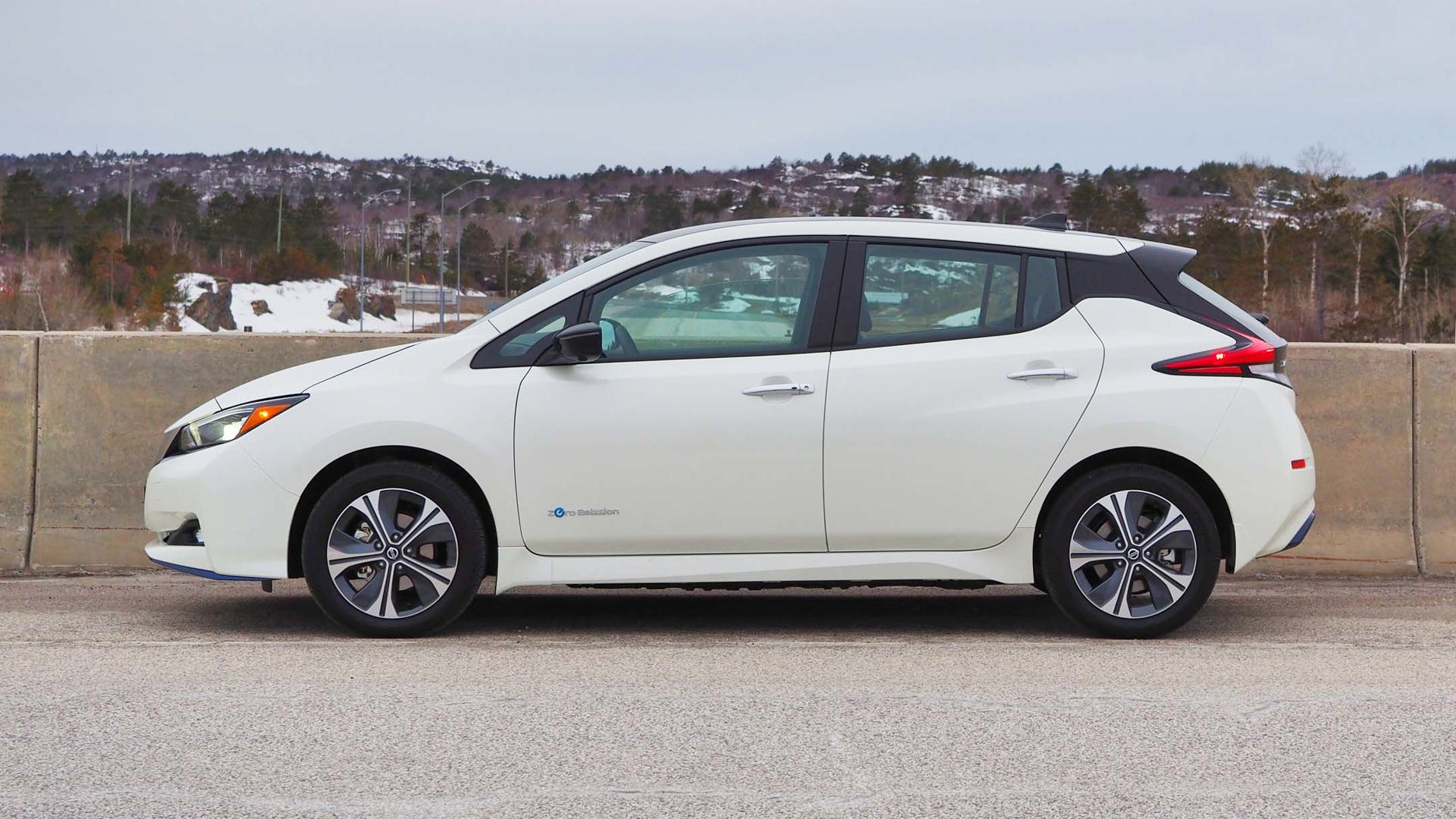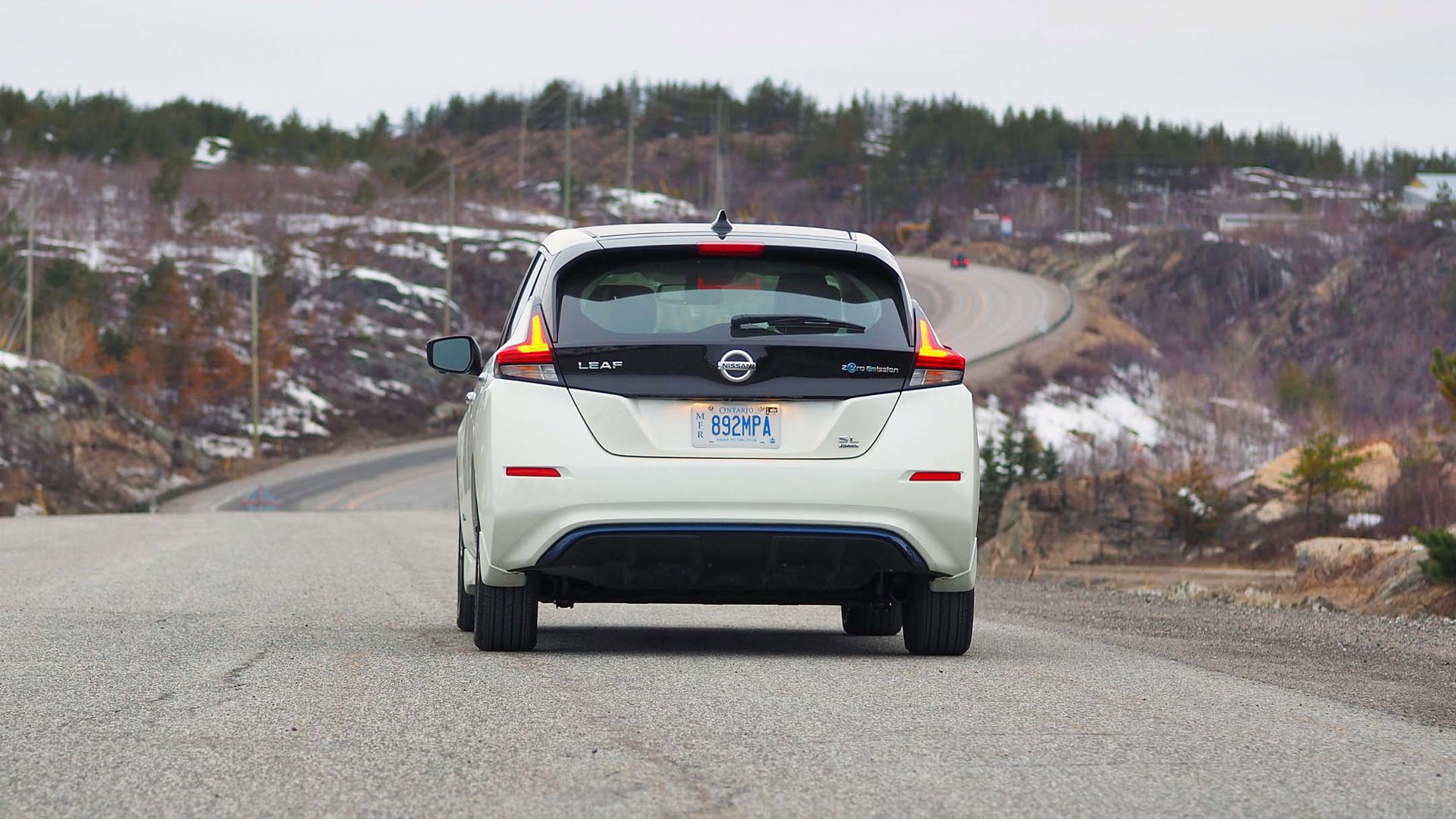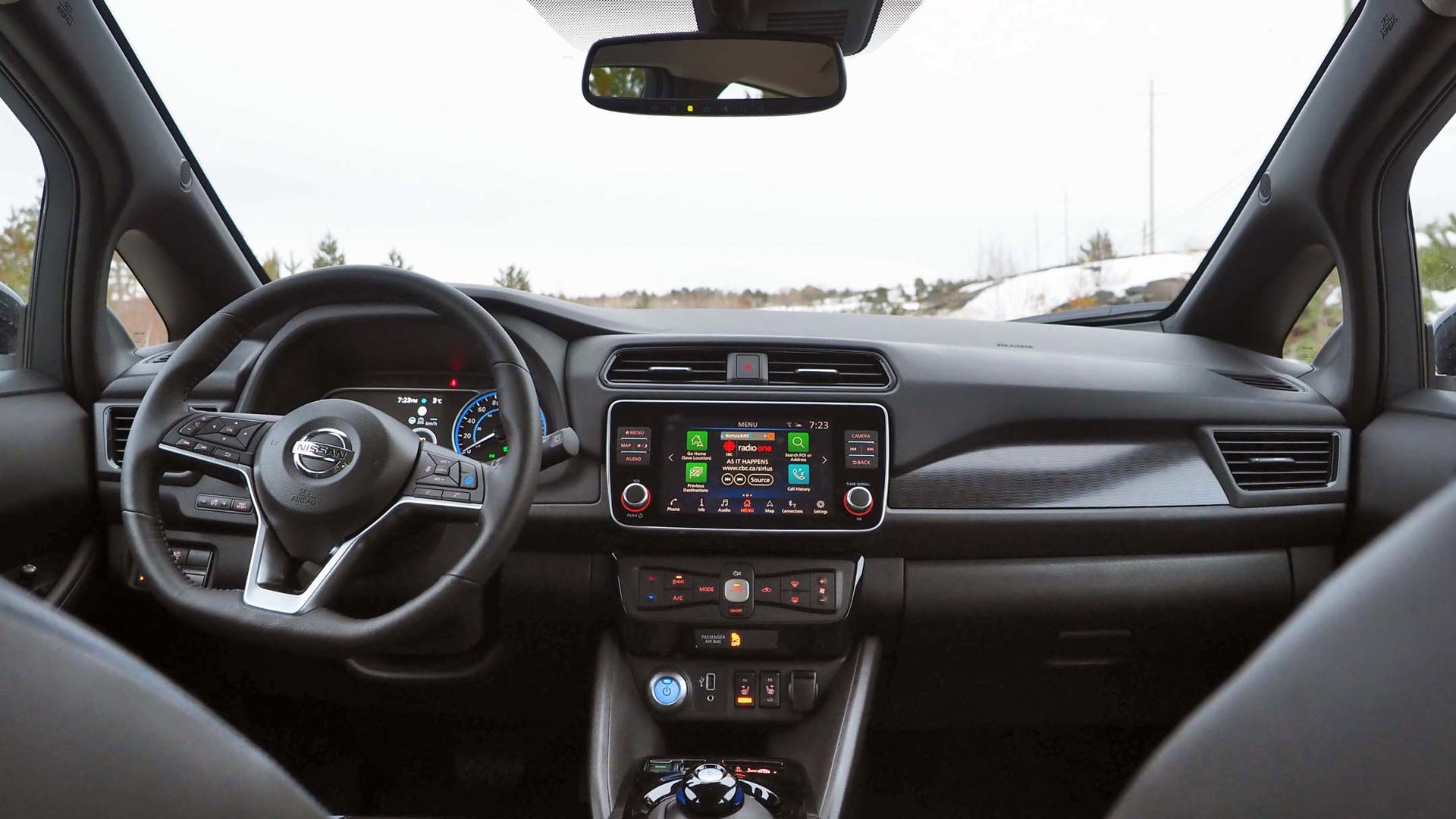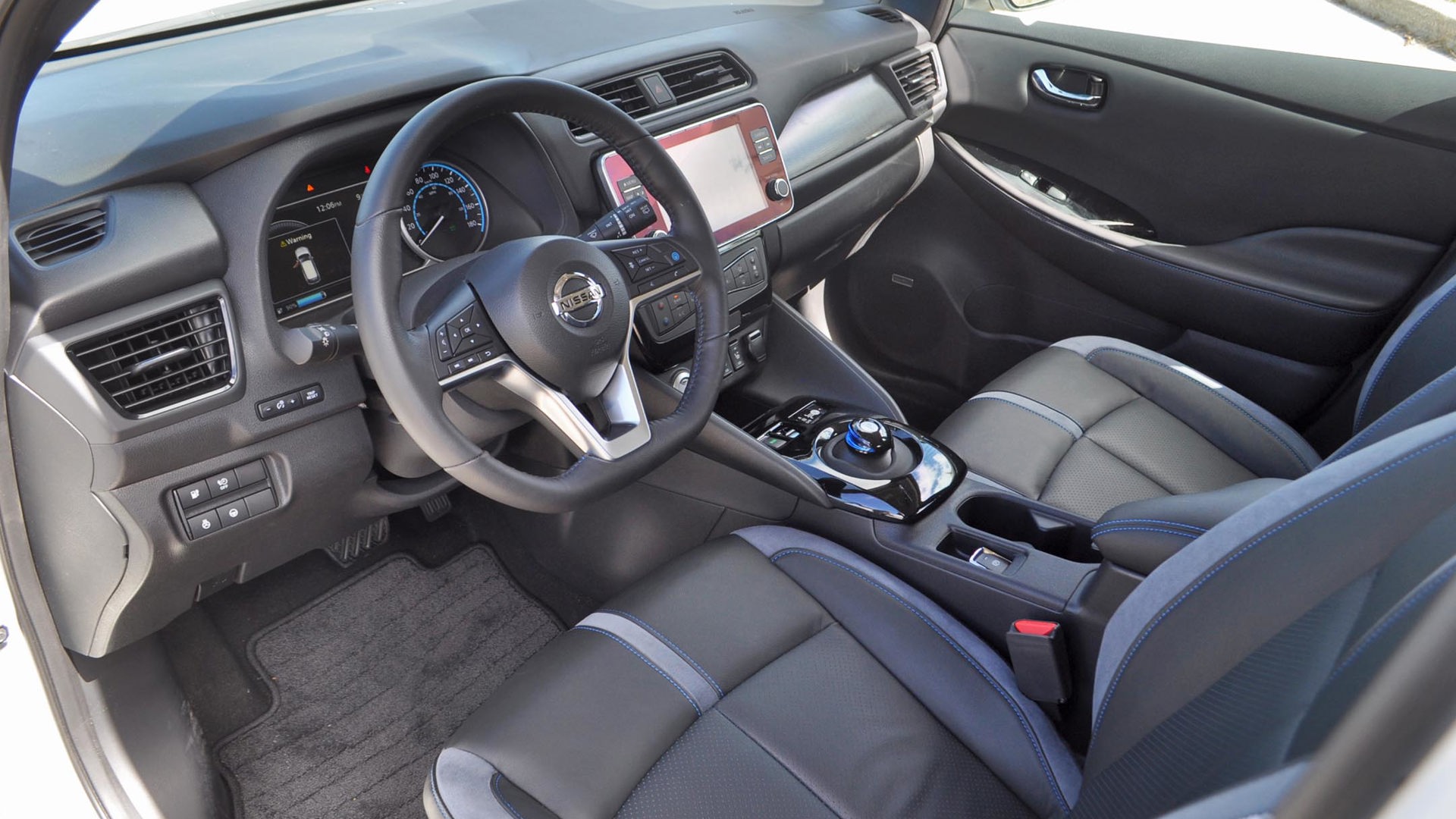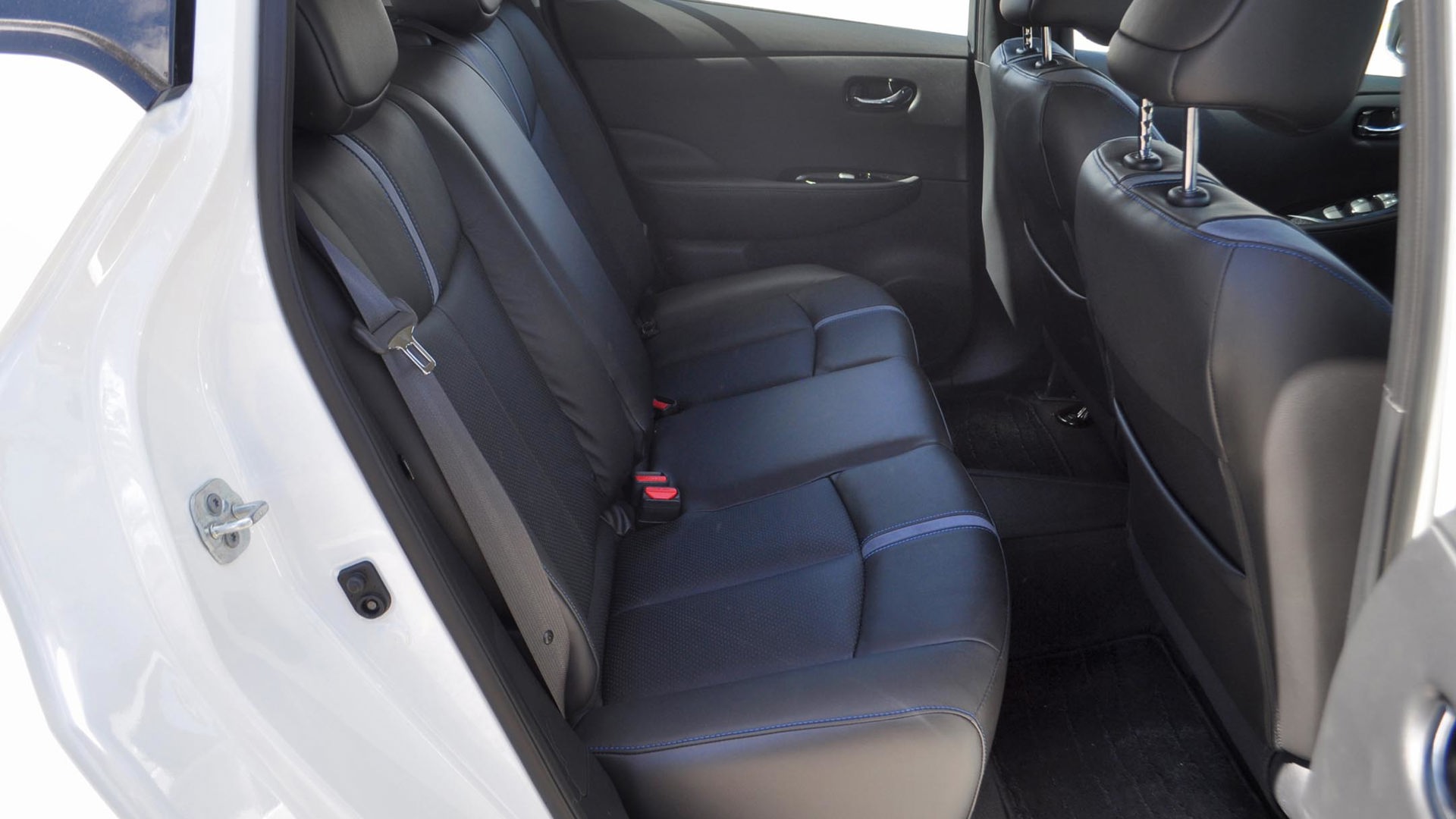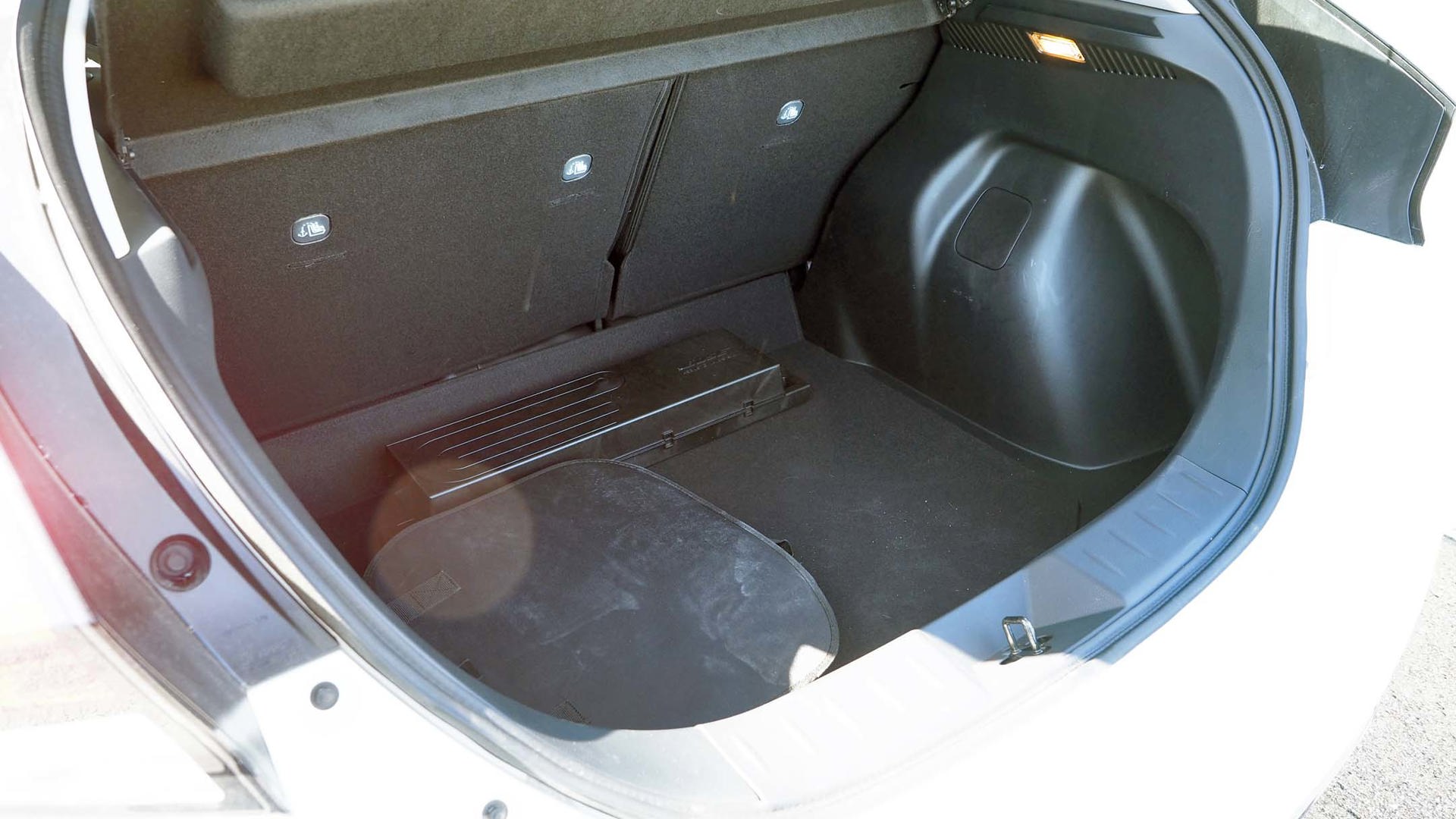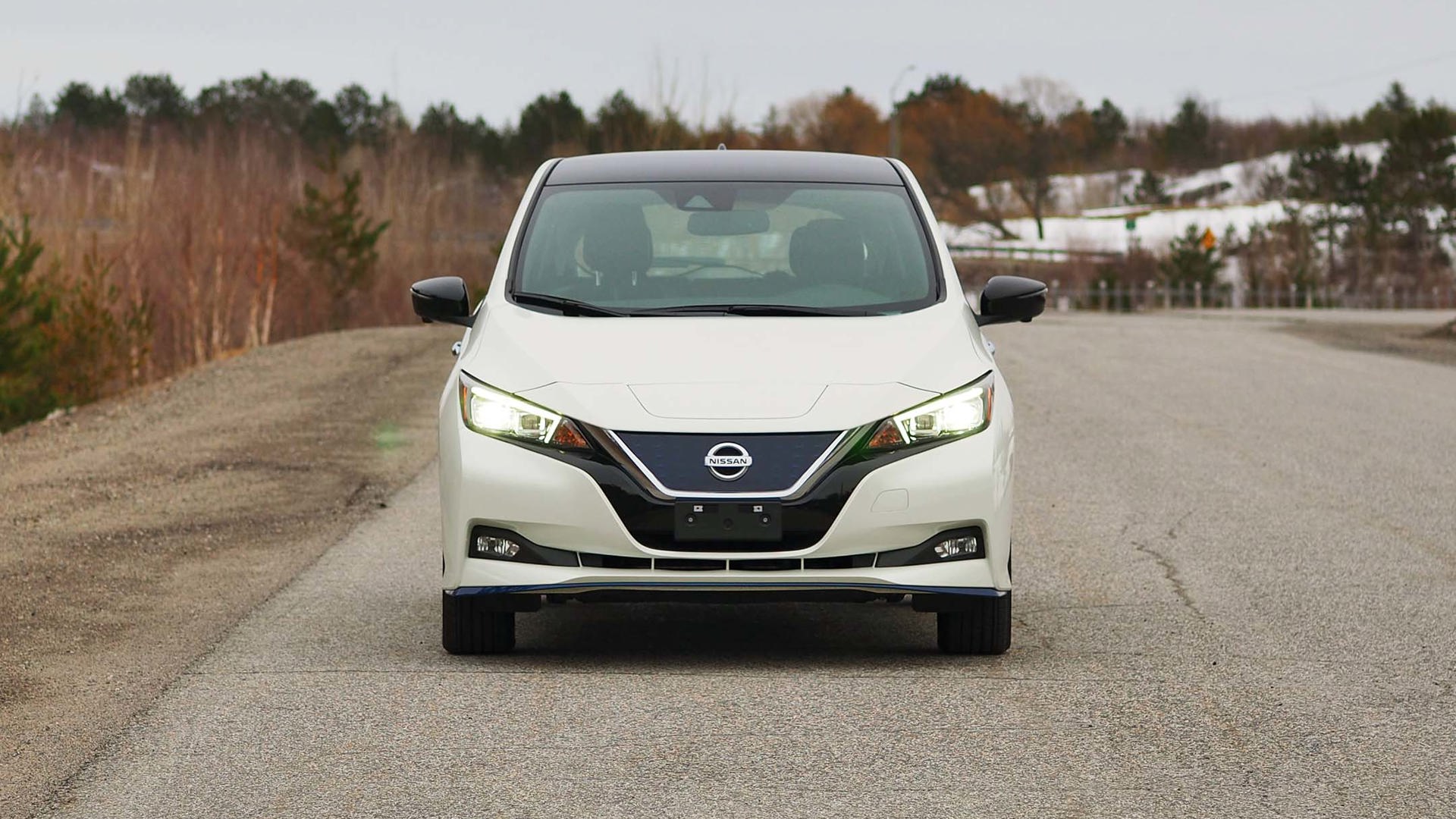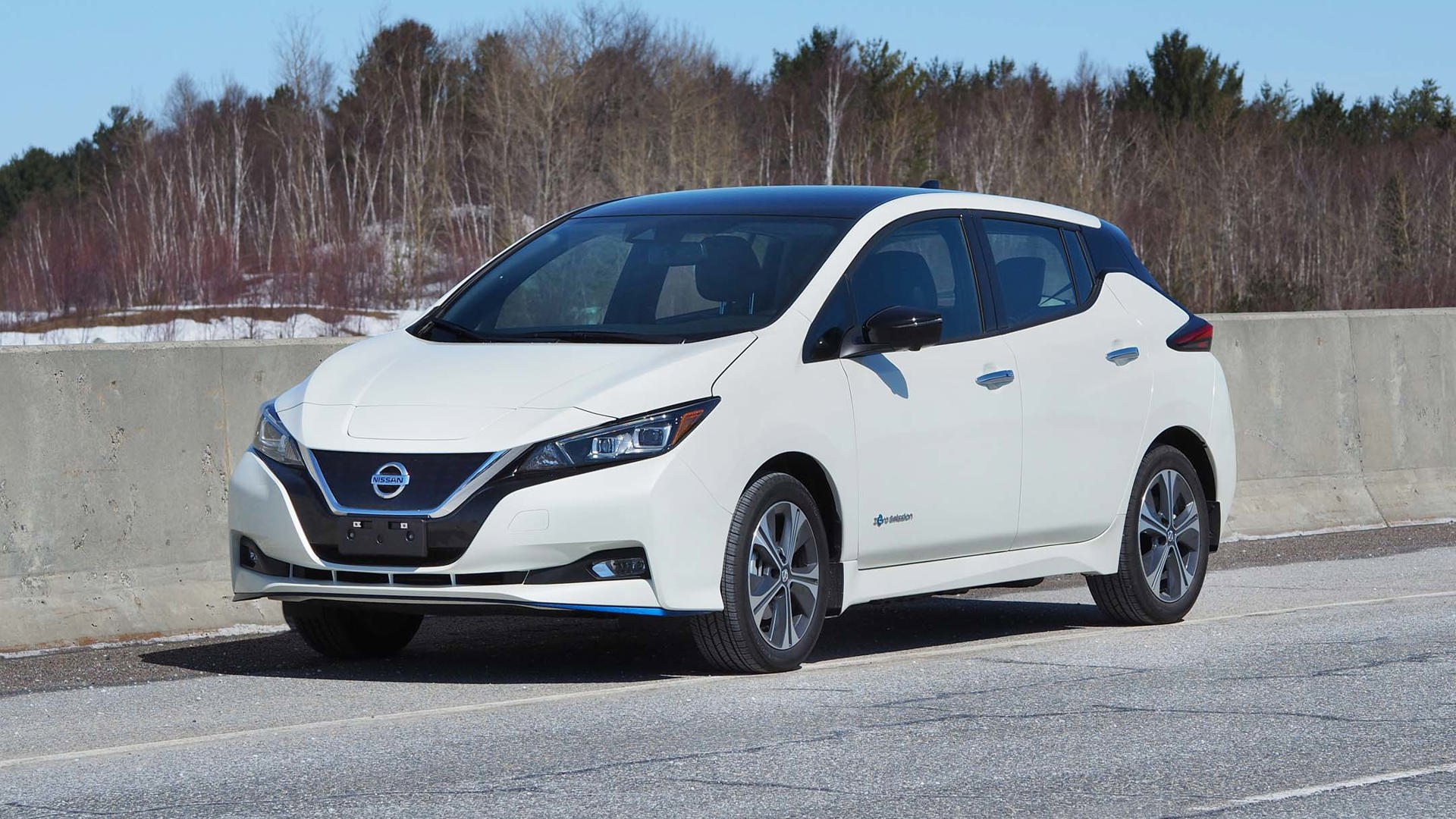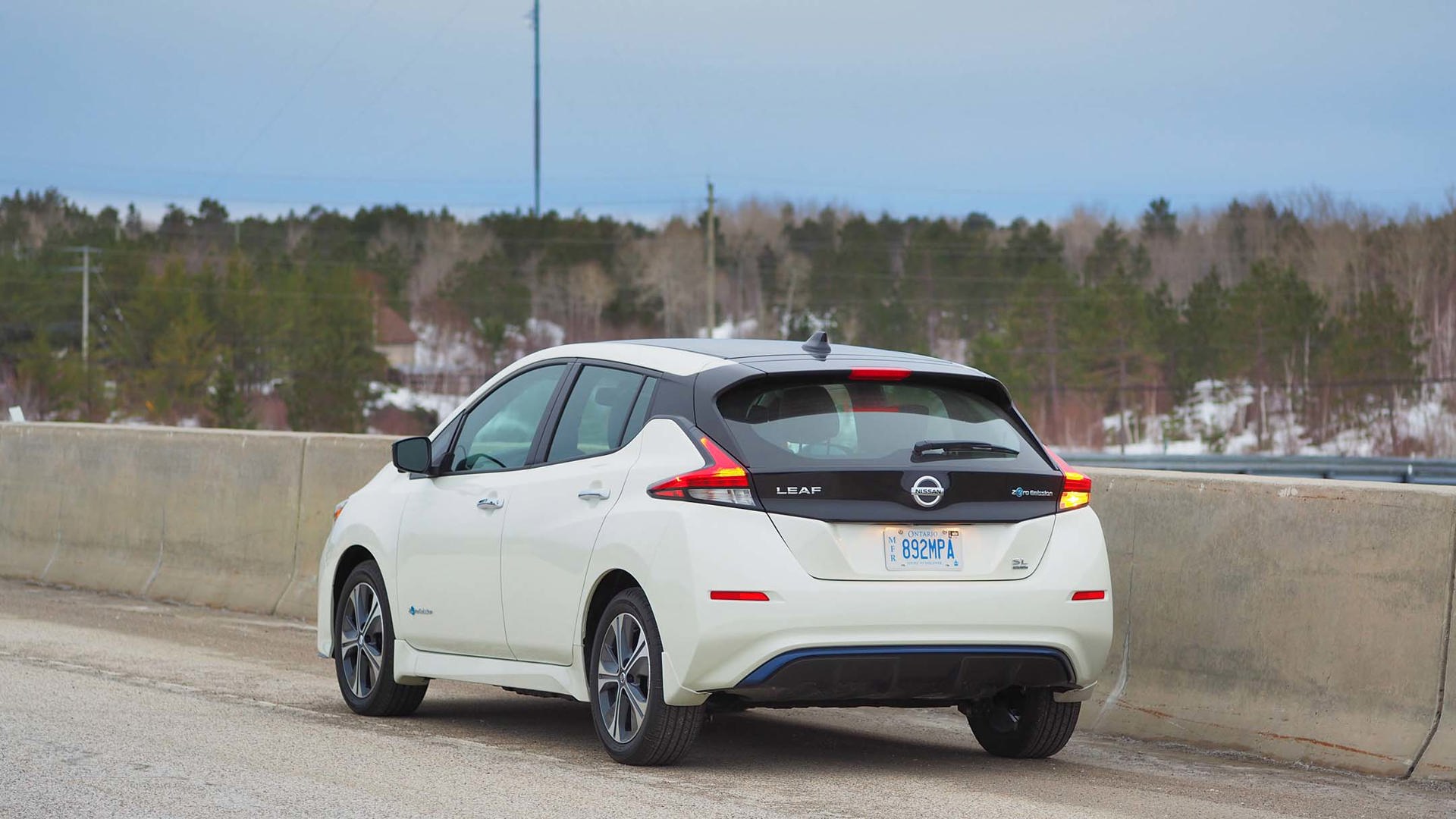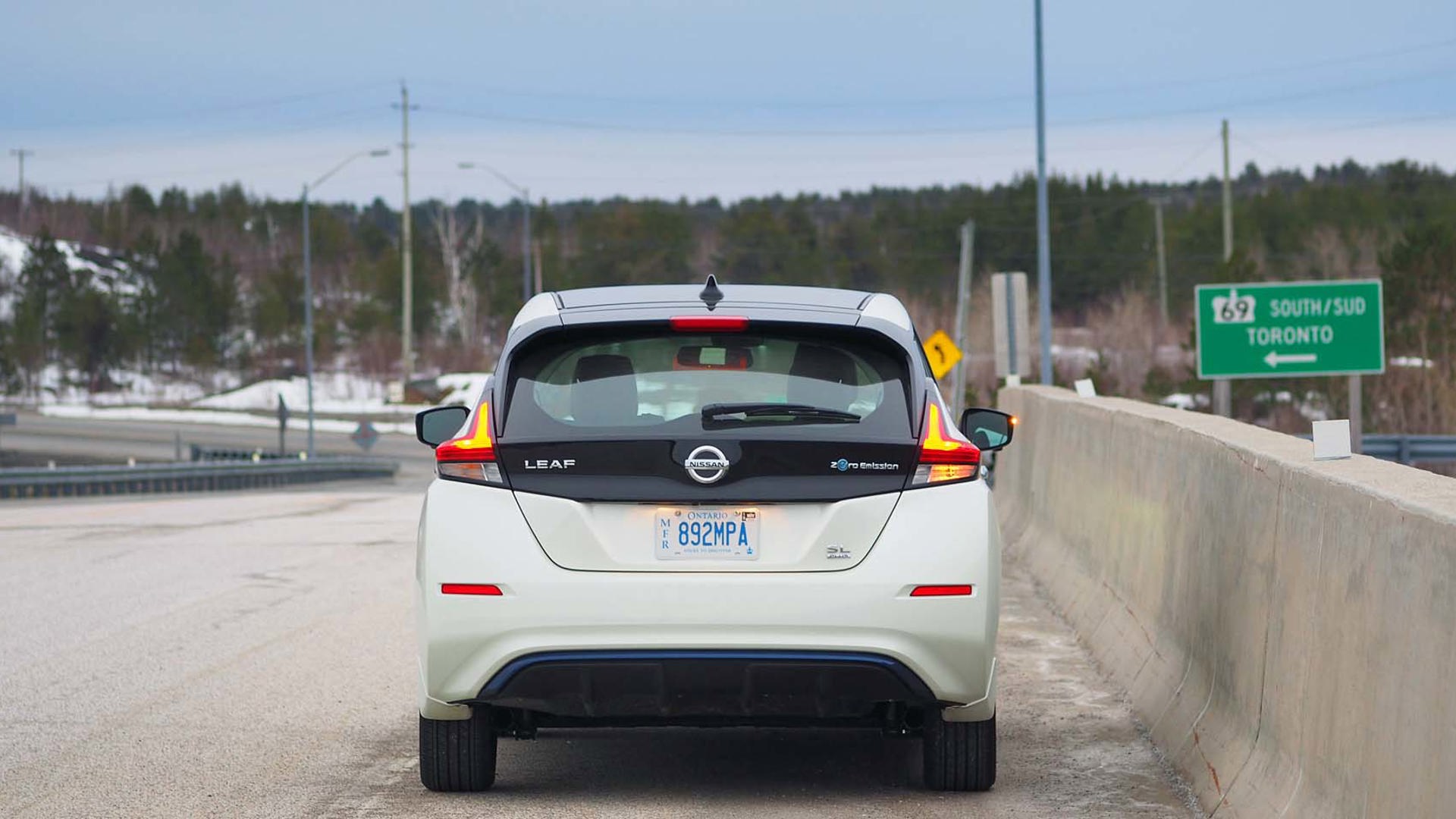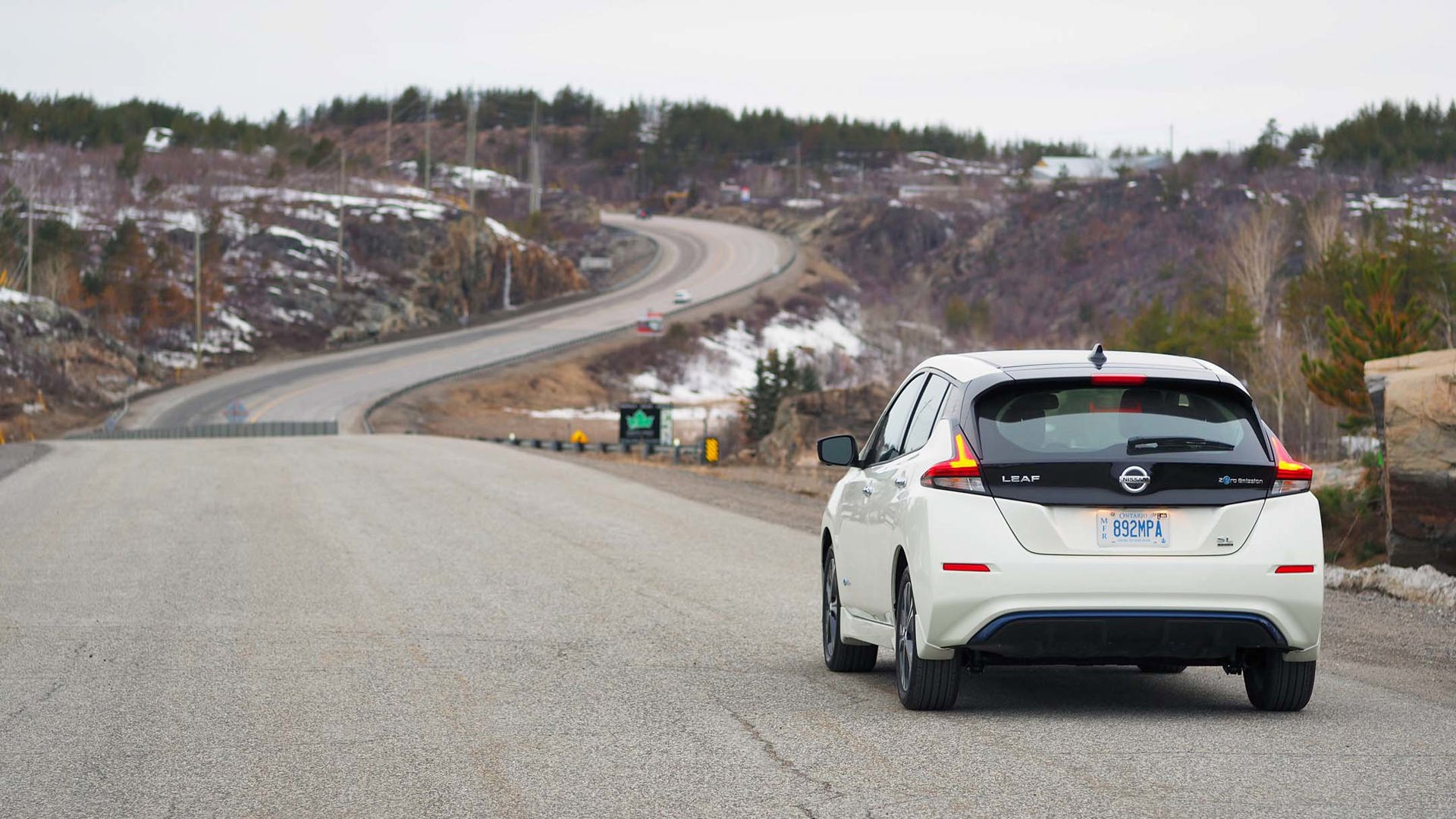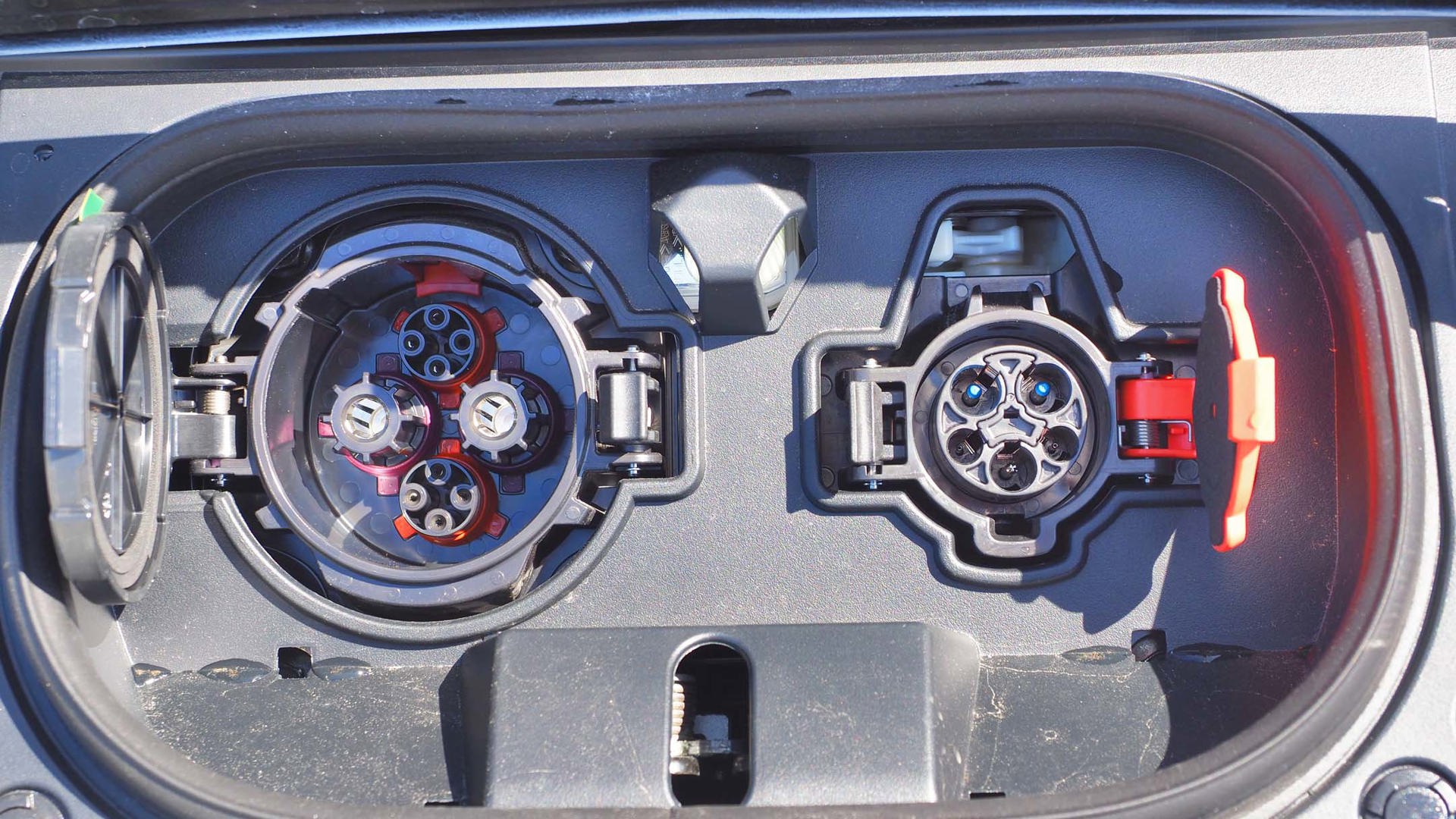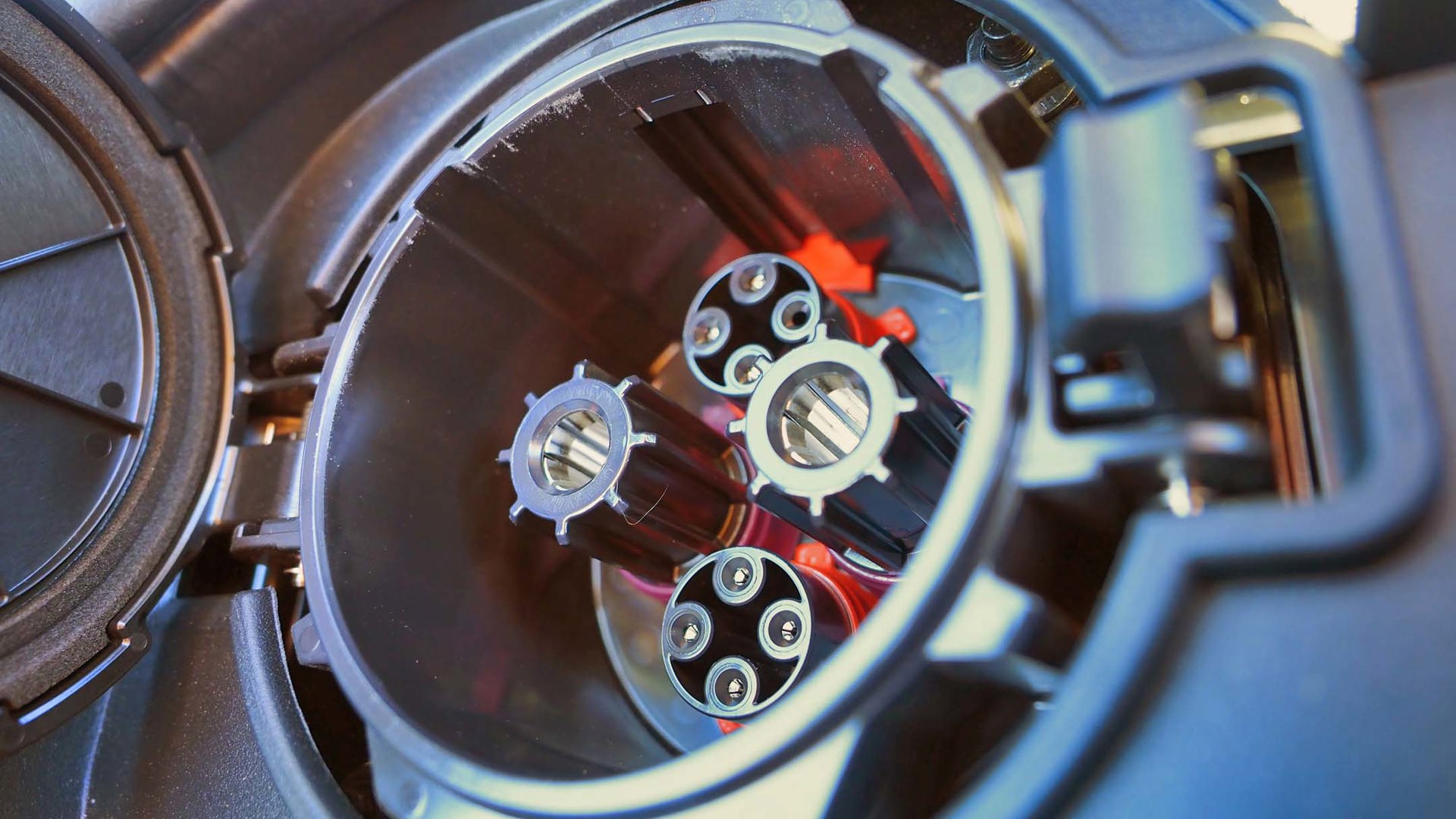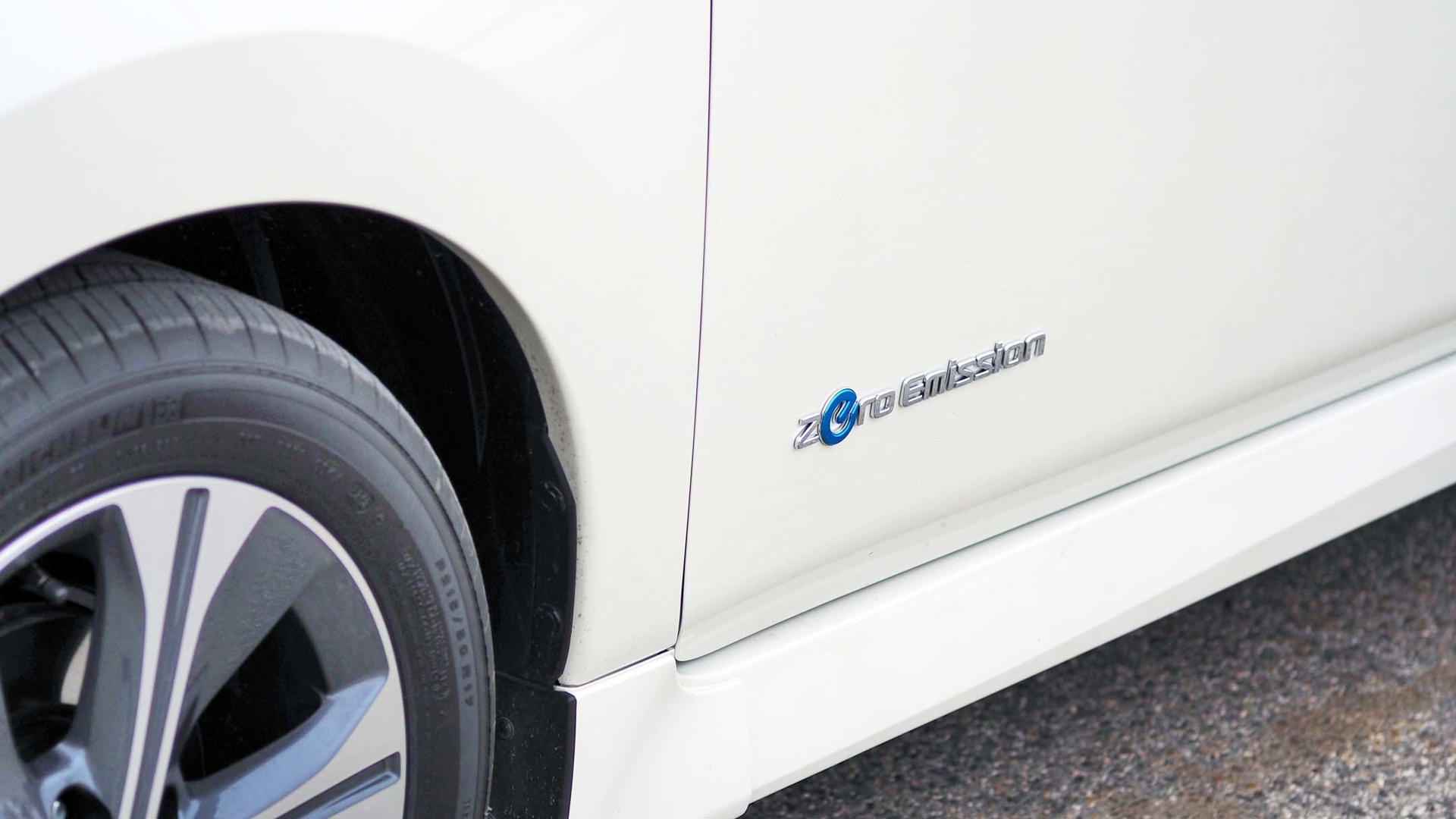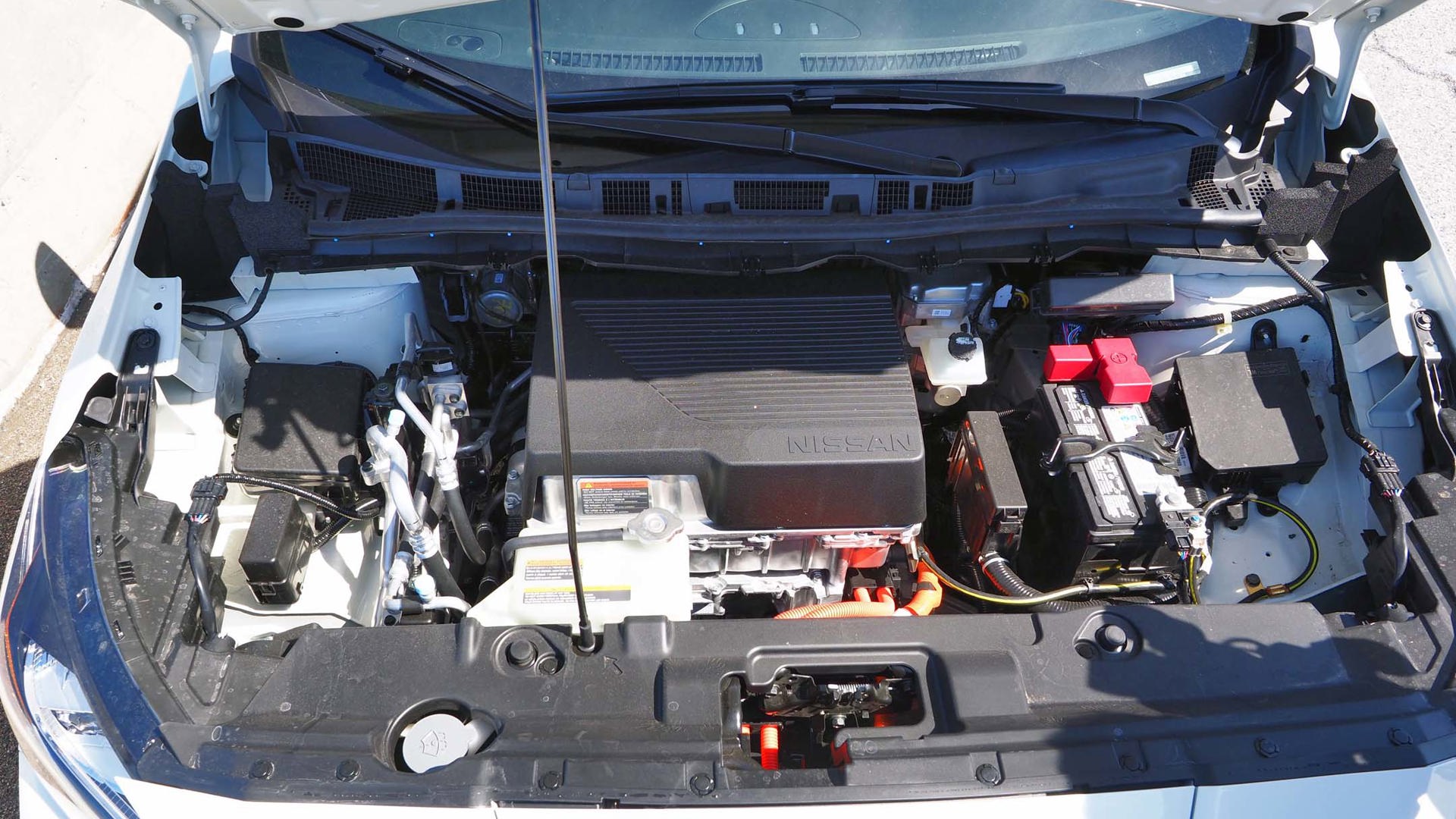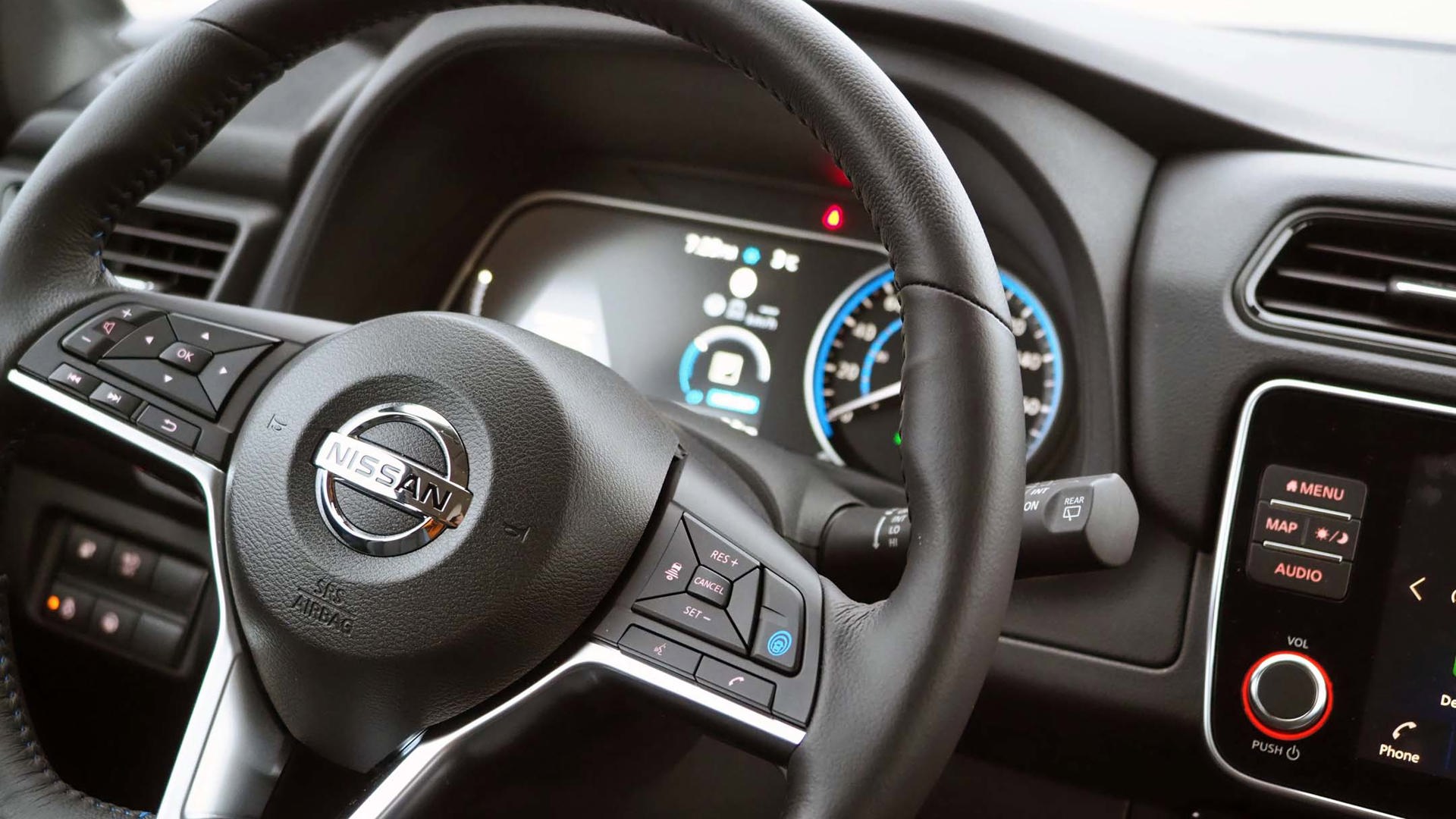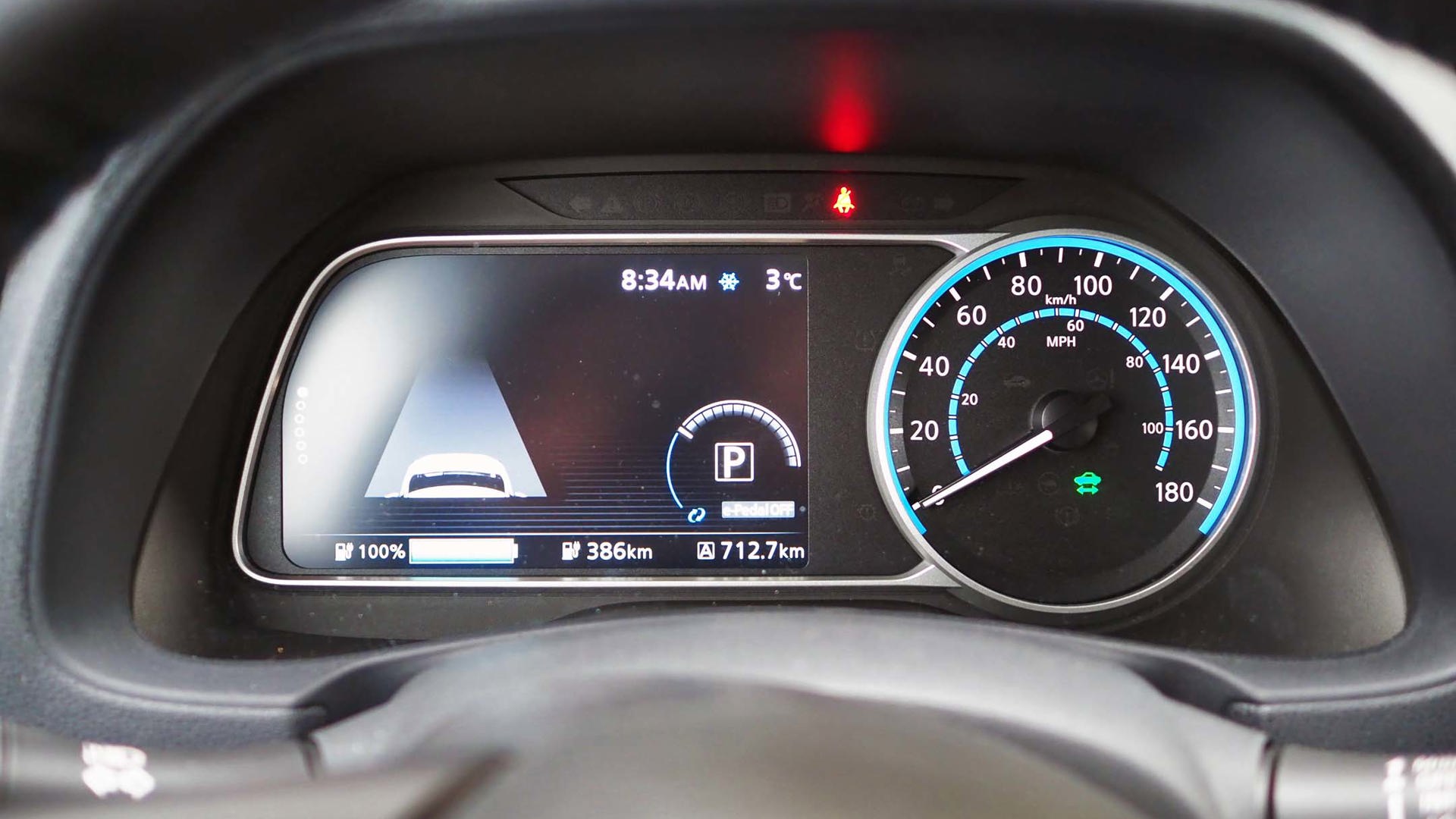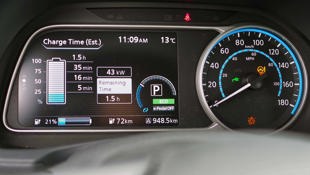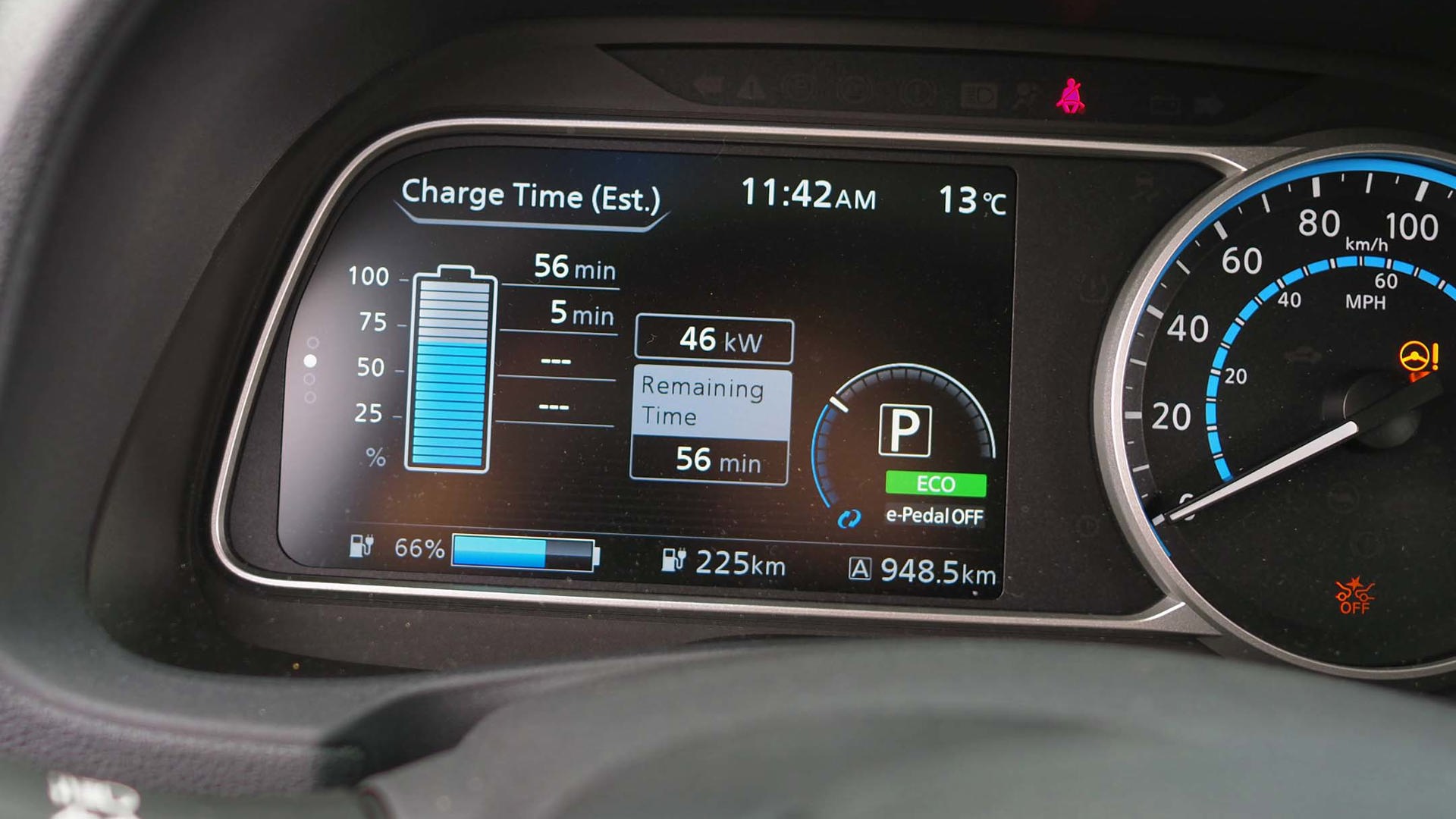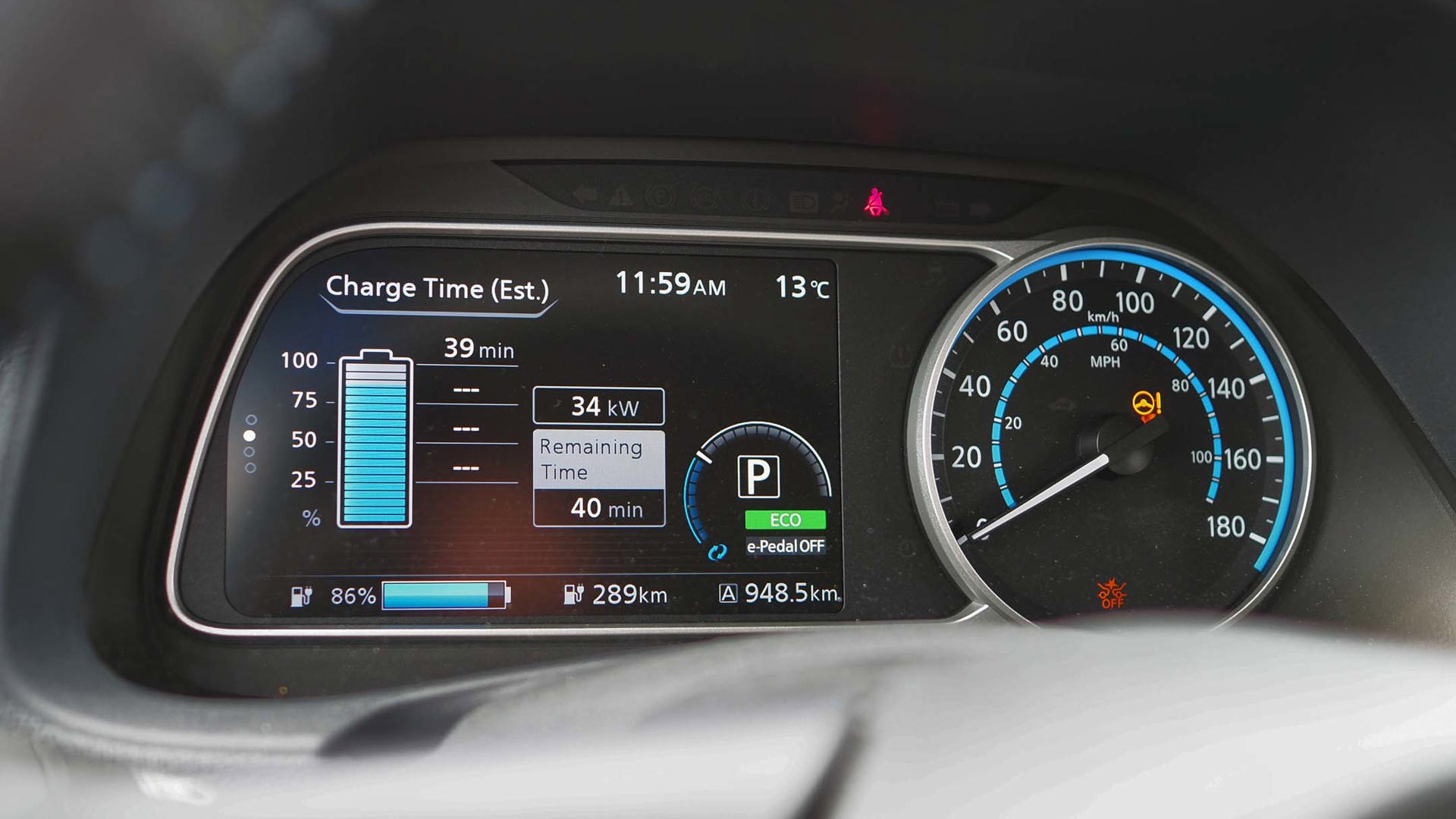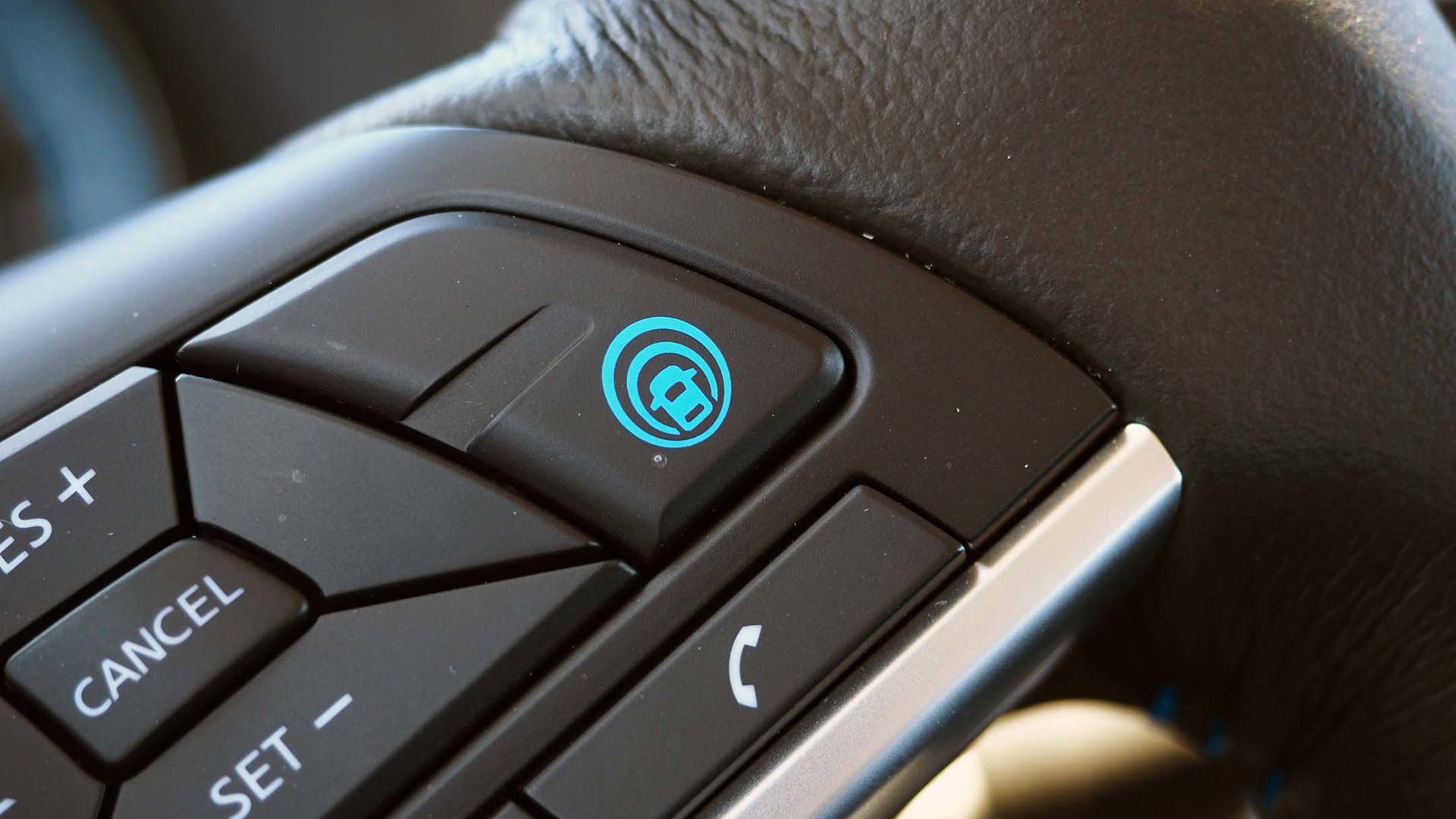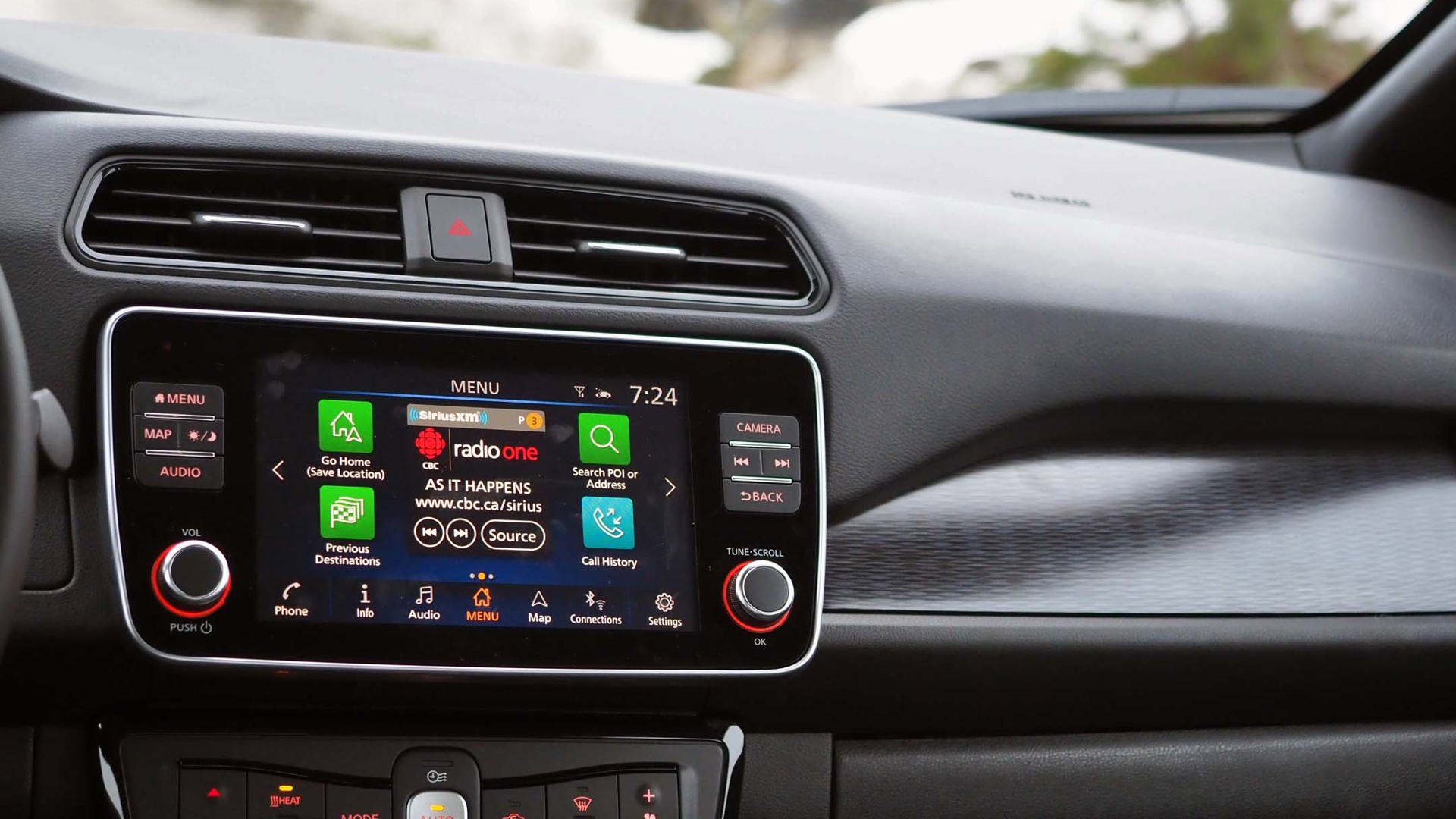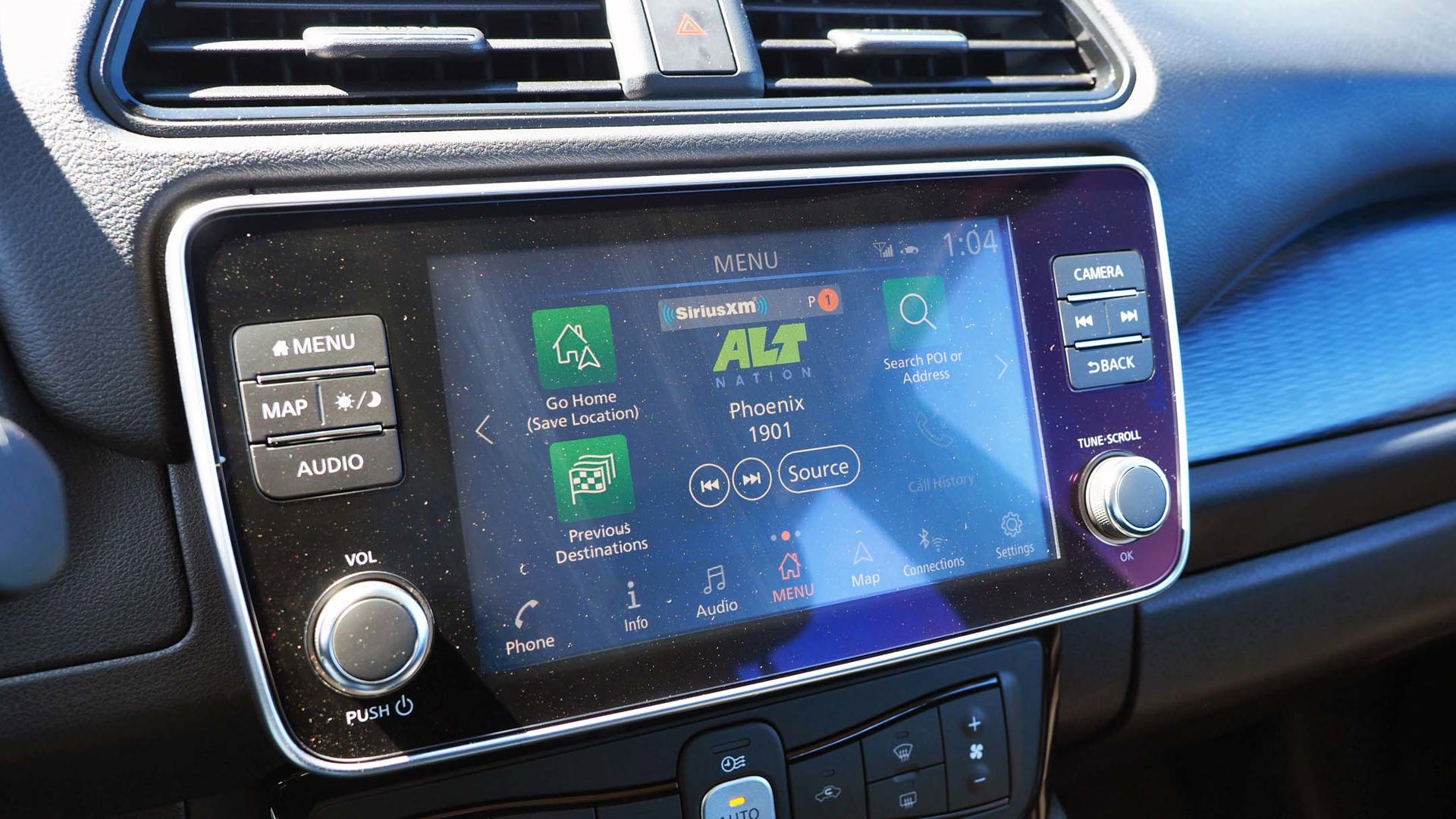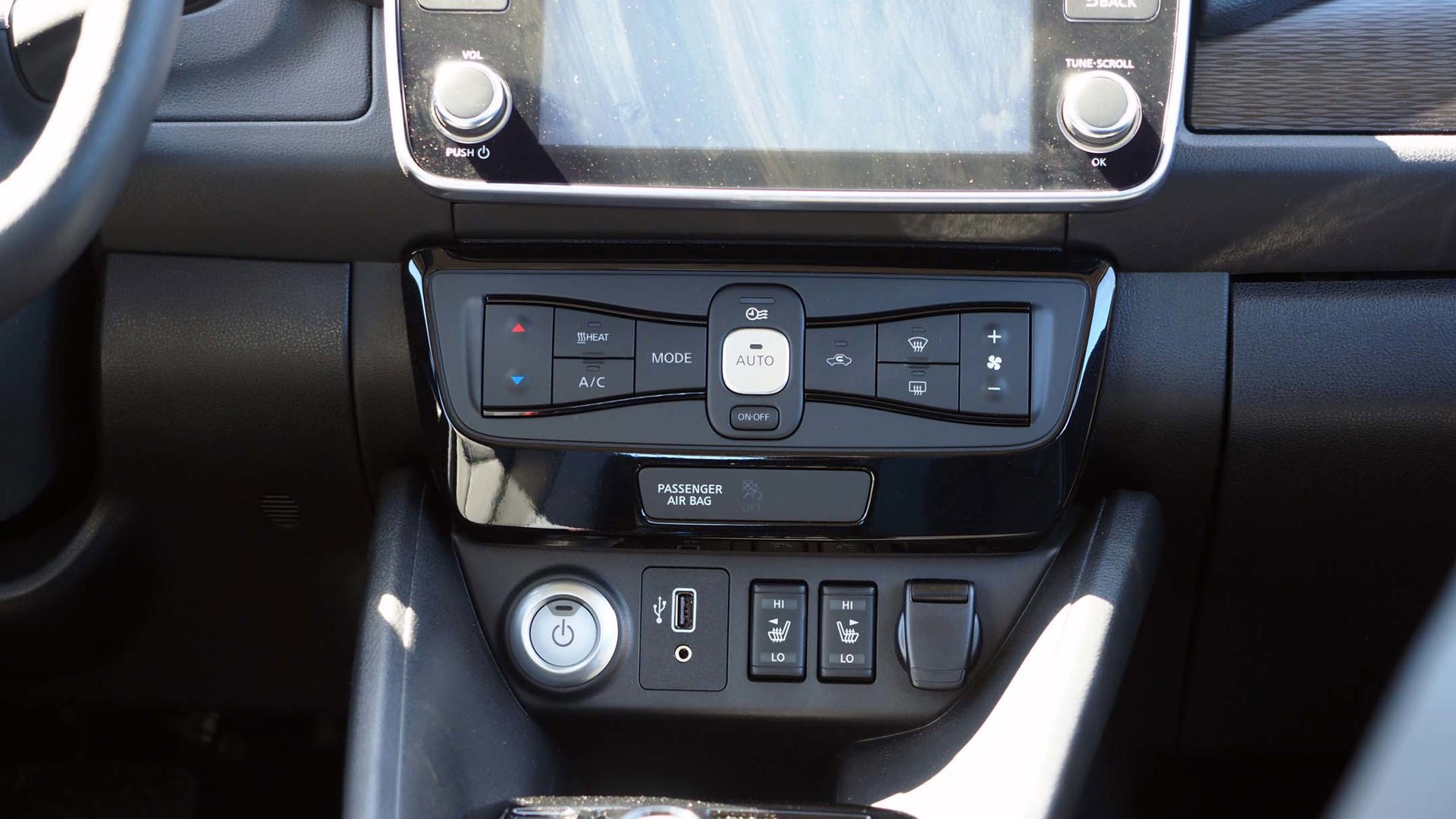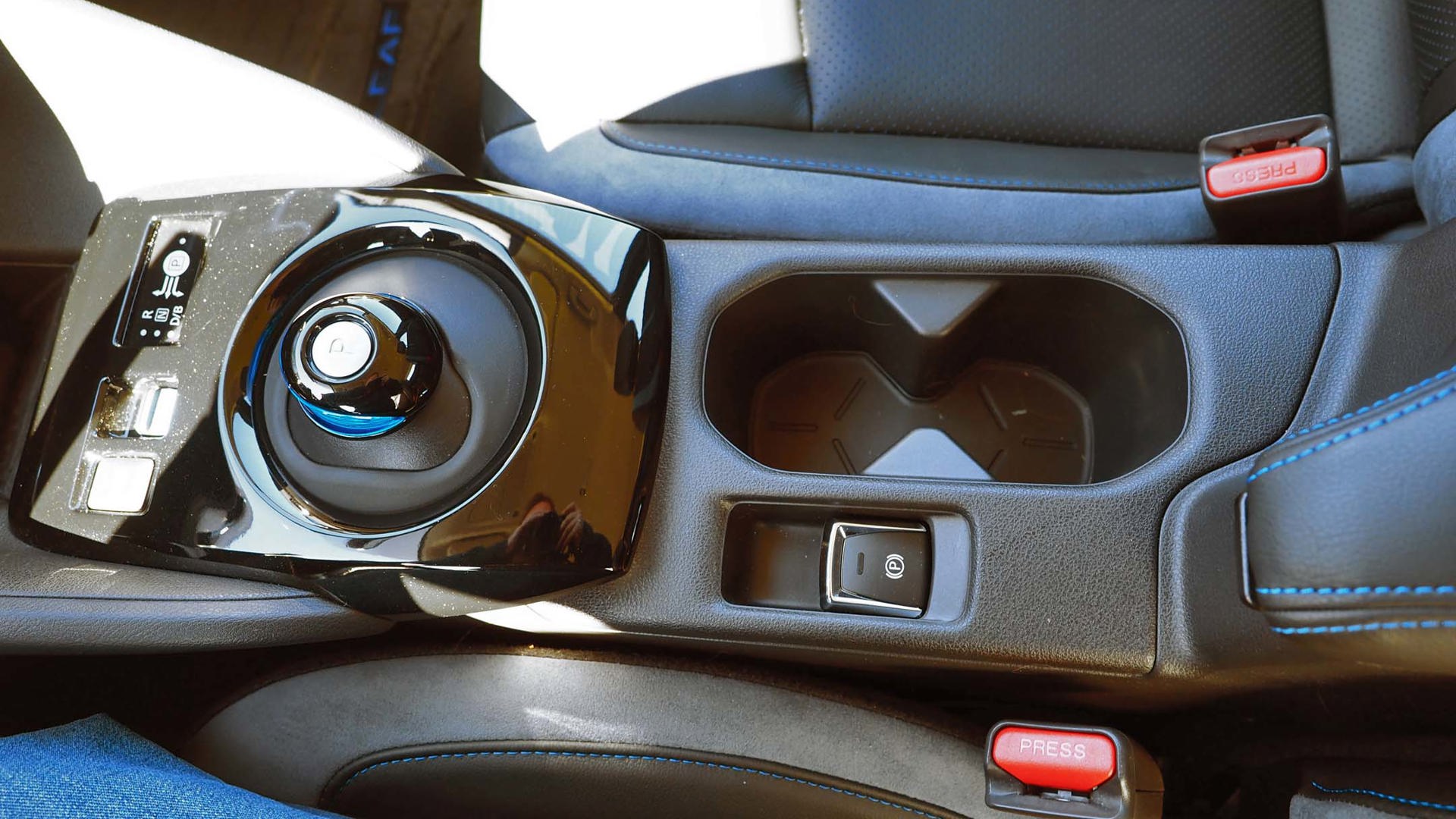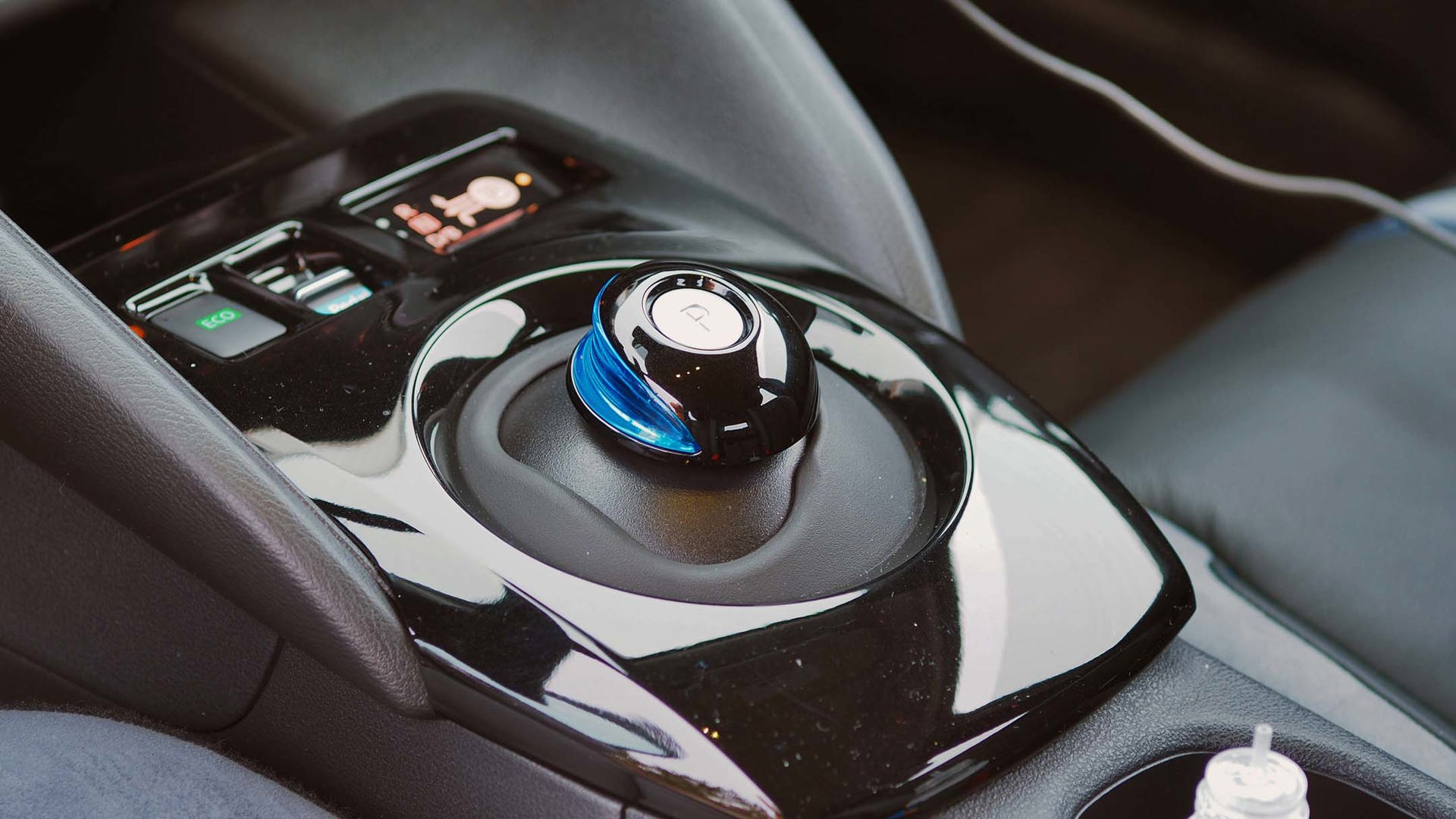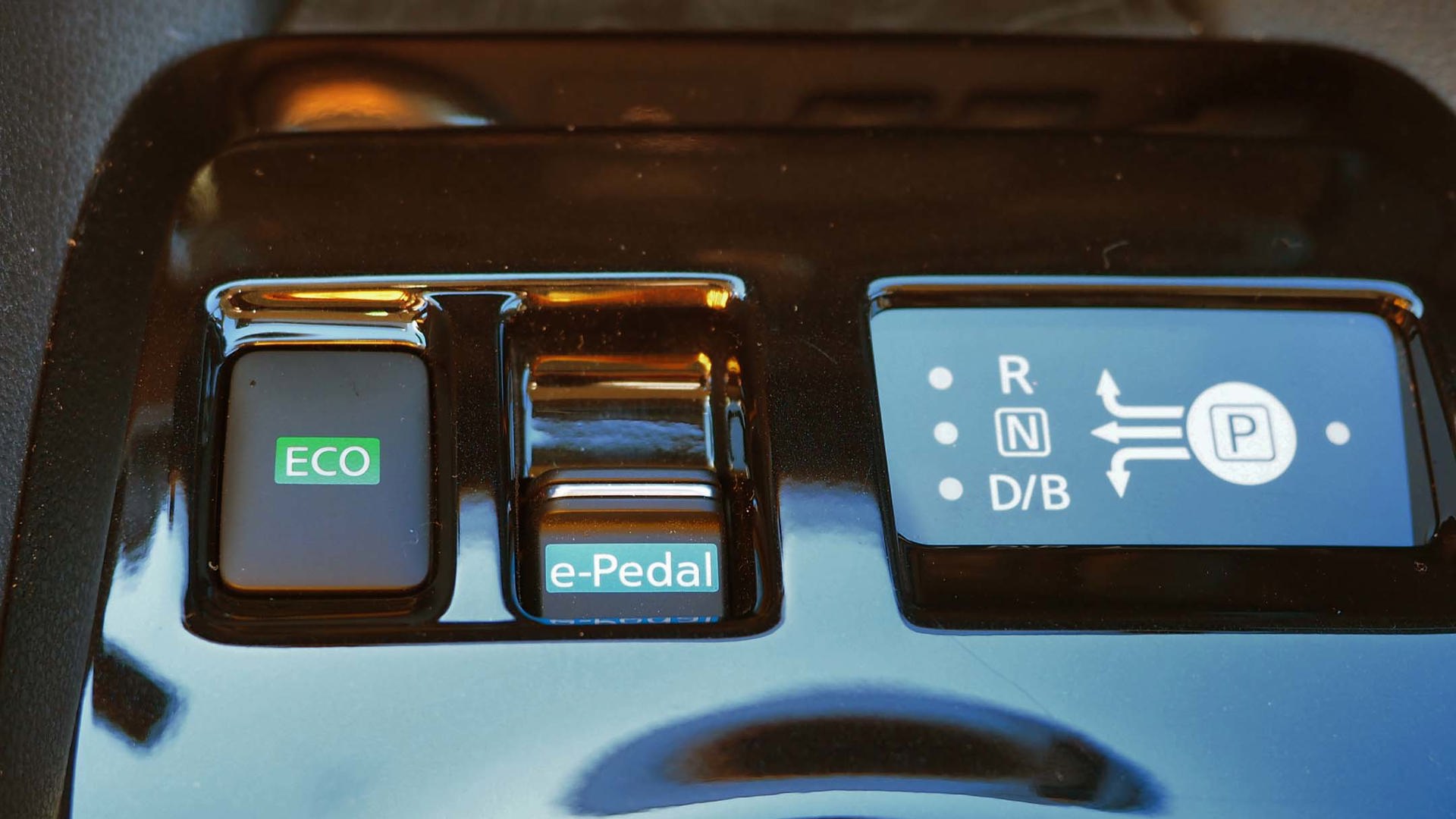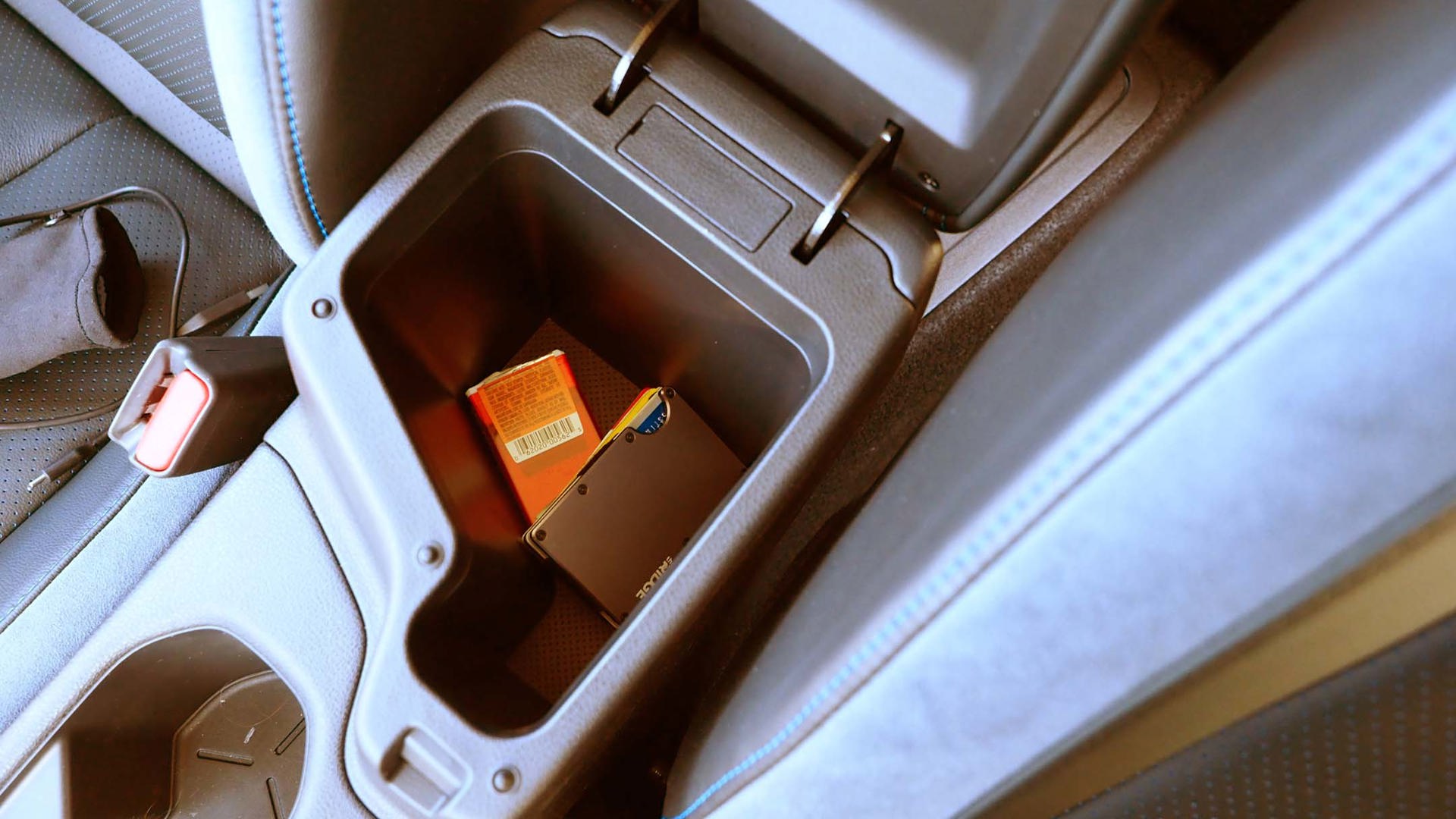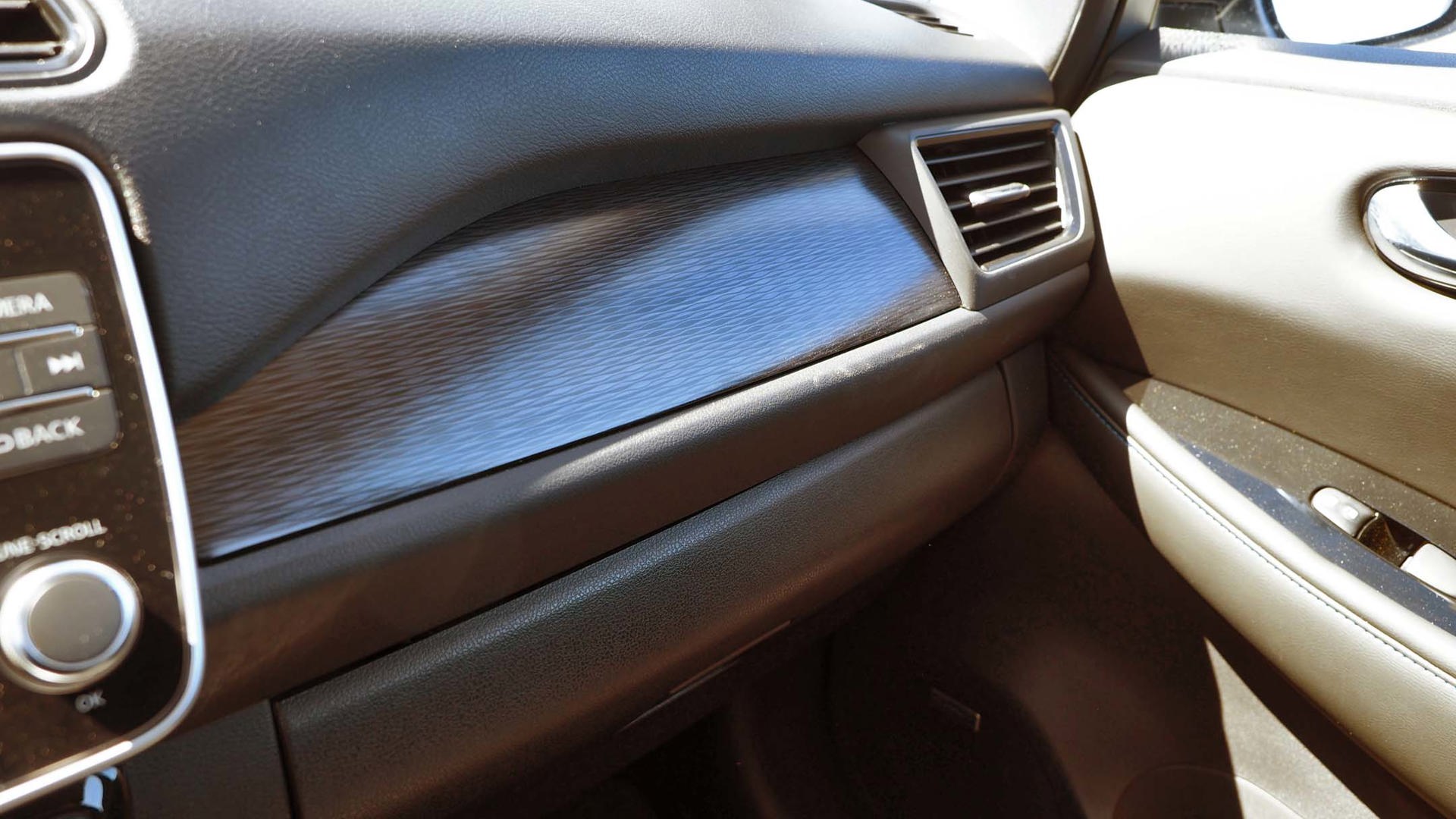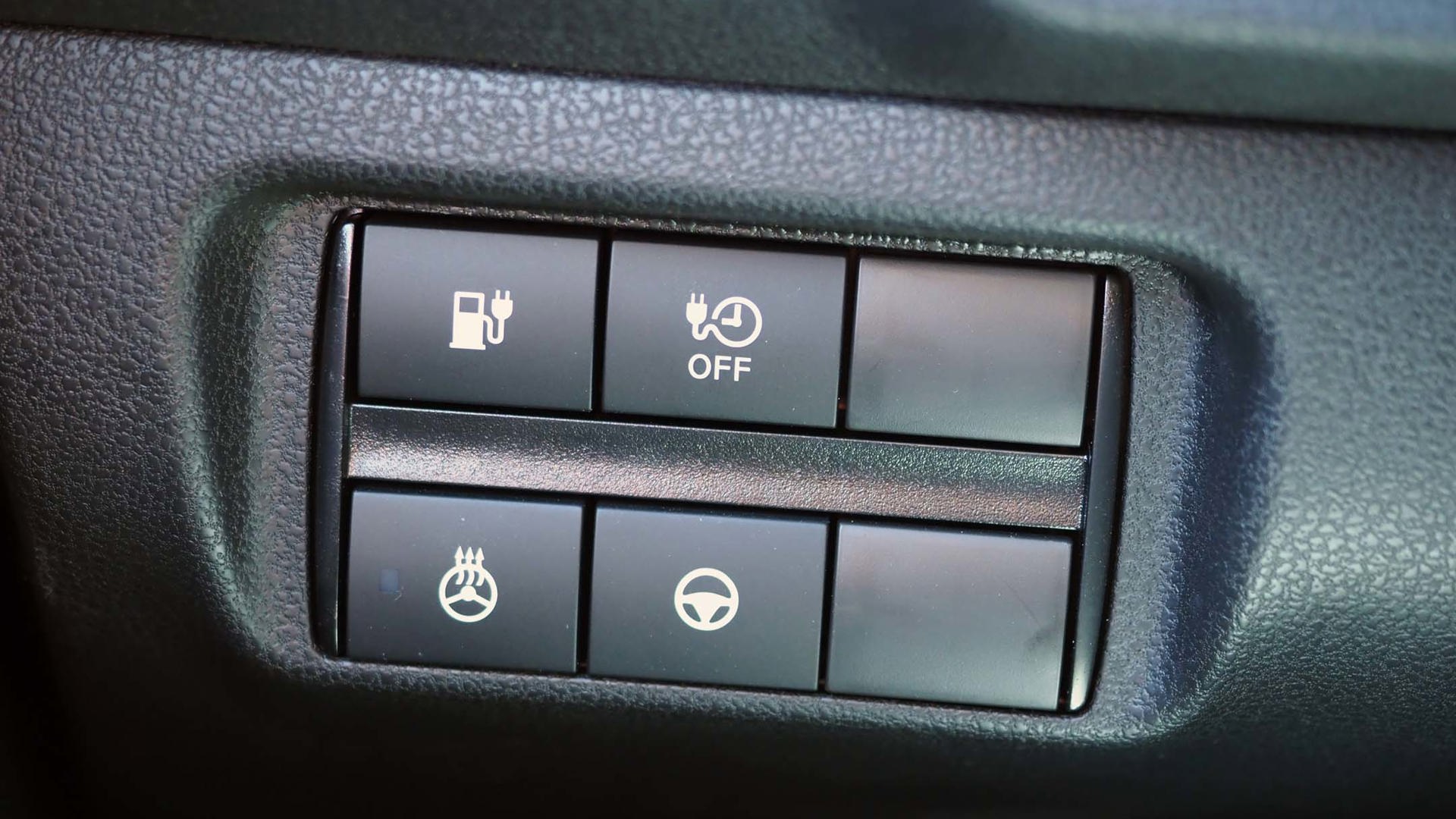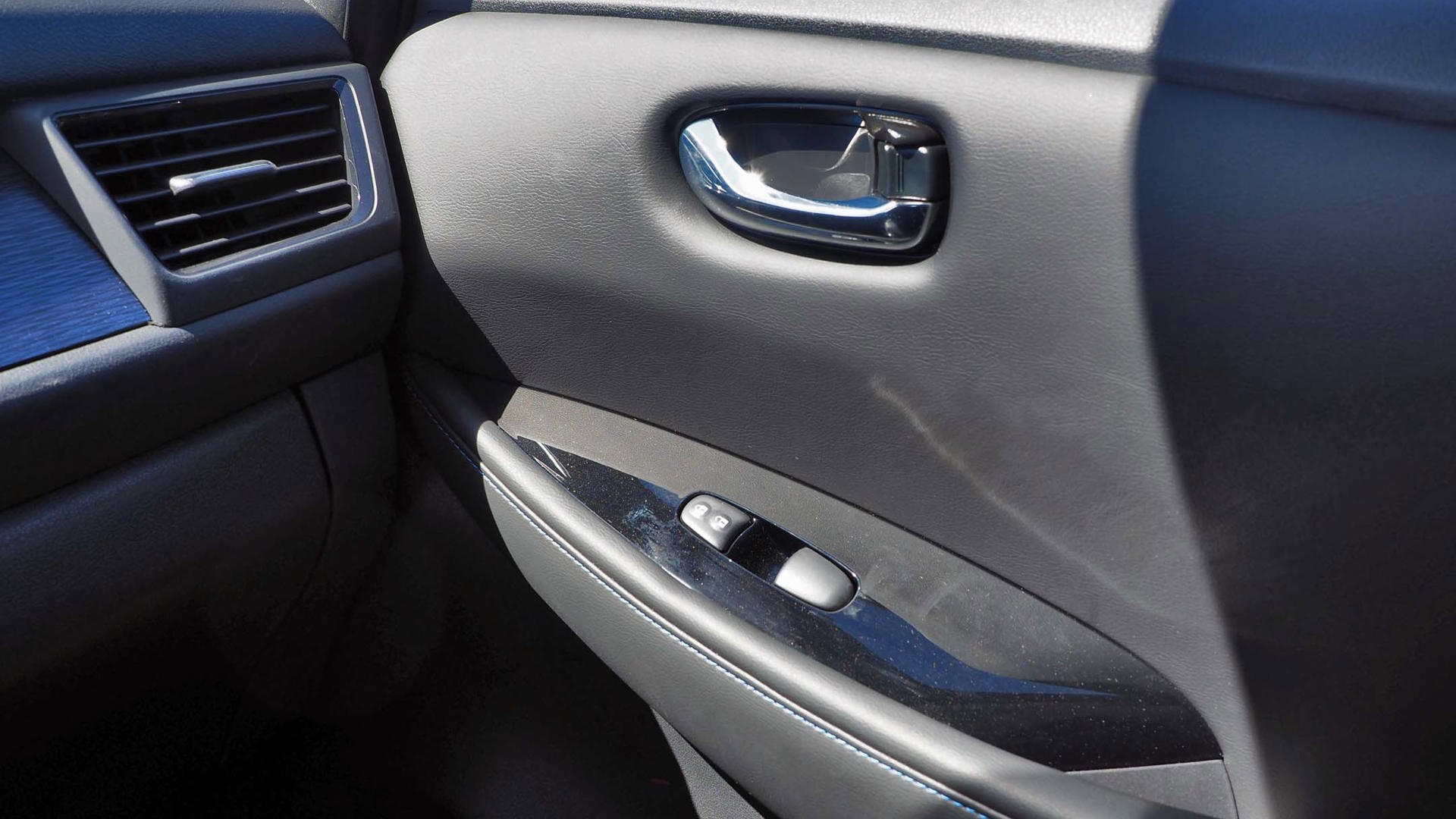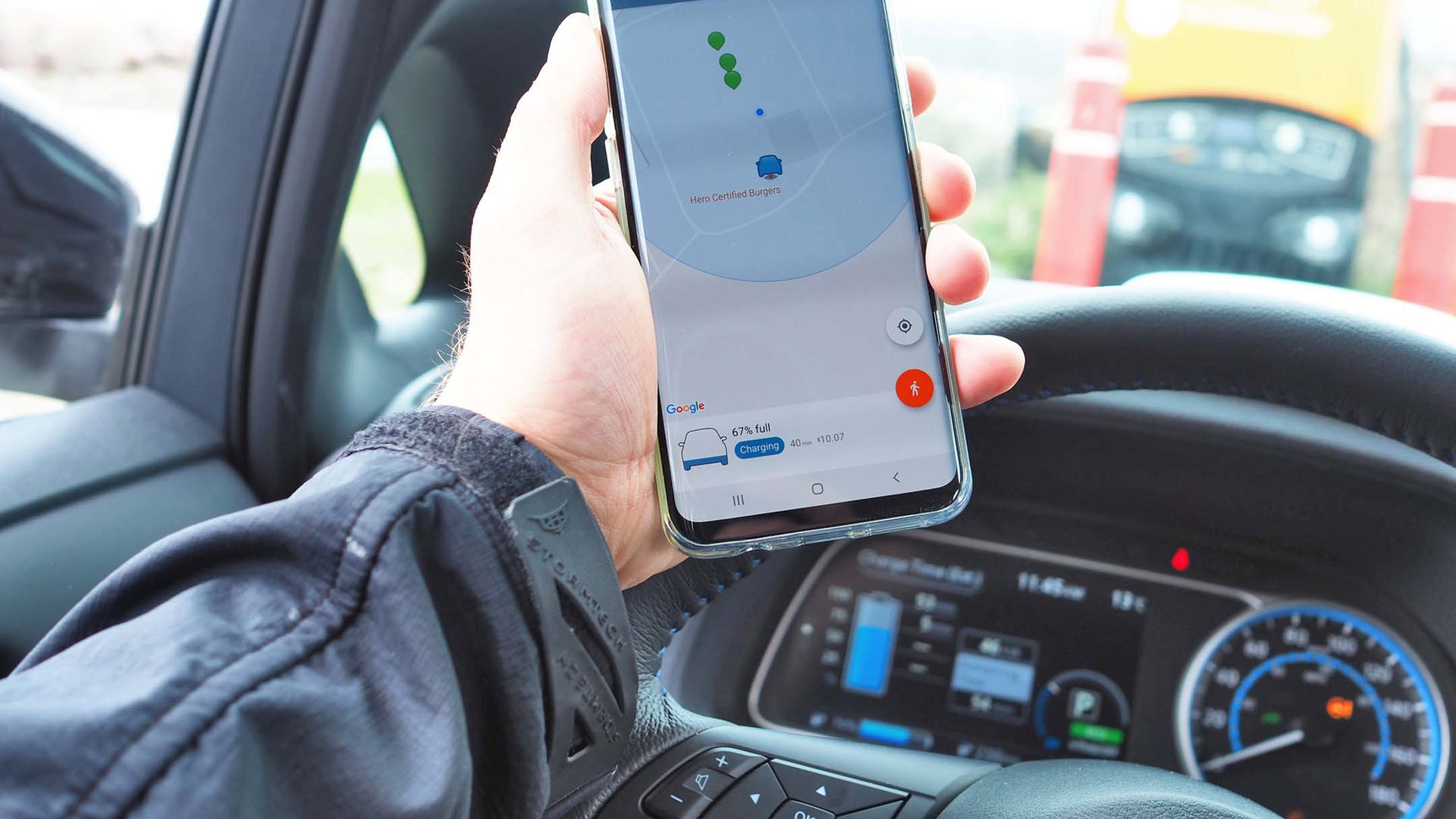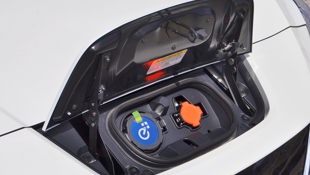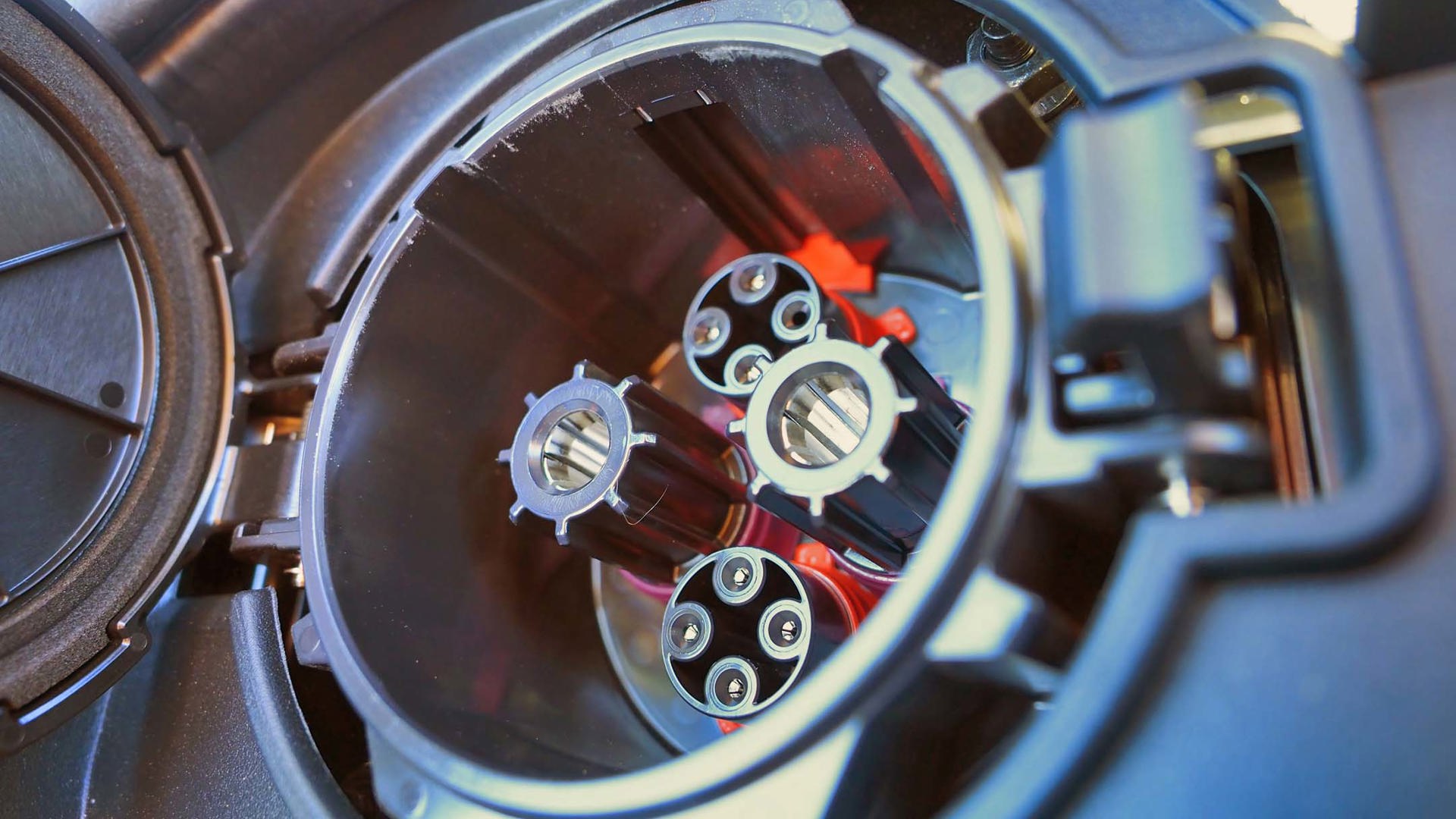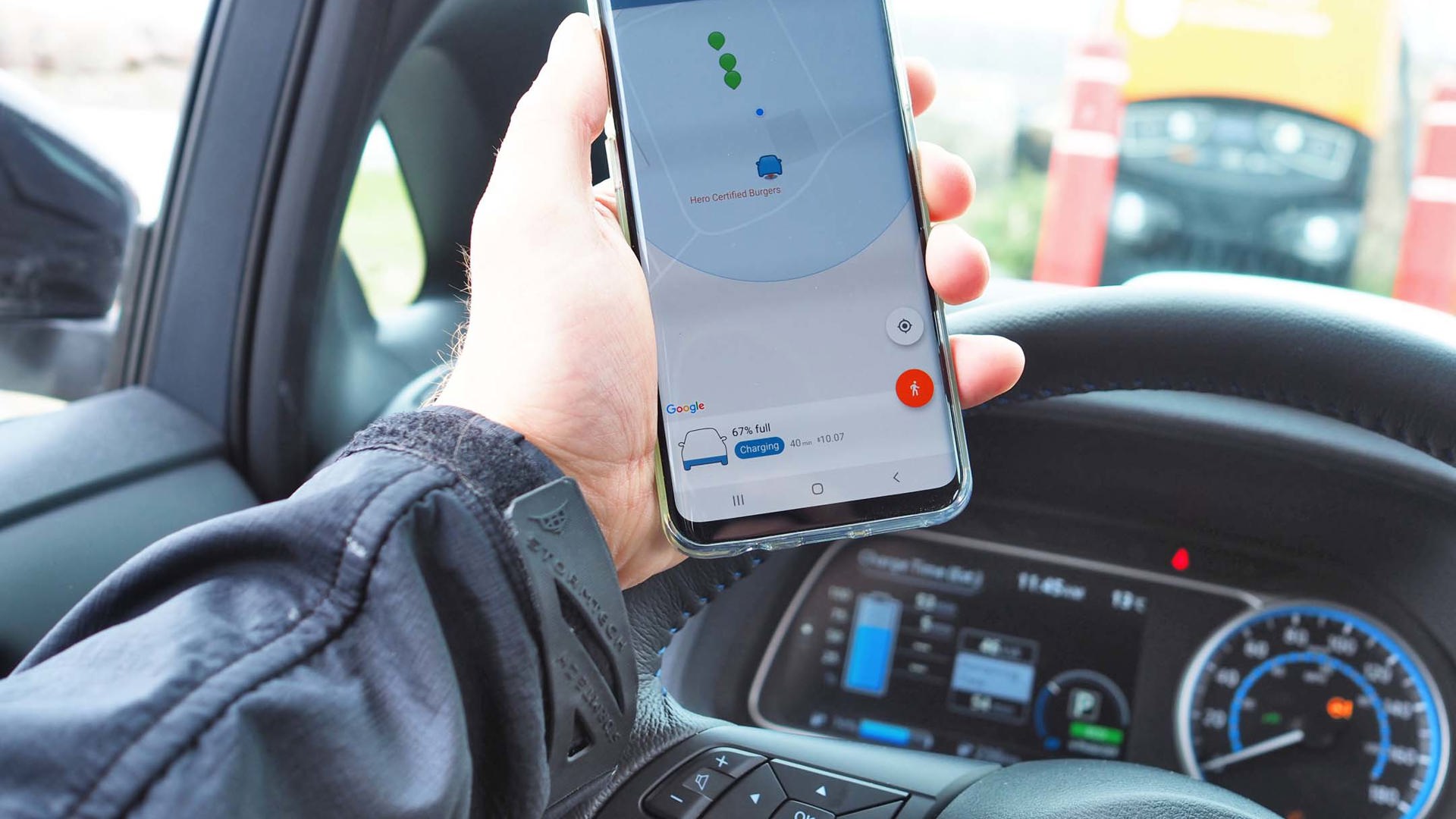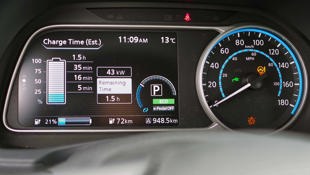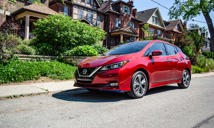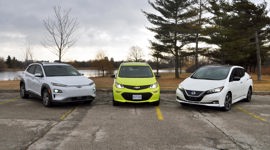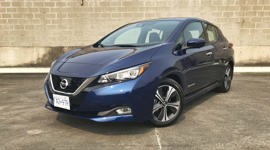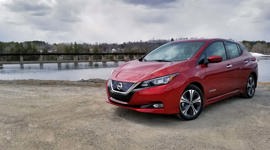 AutoTrader SCORE
AutoTrader SCORE
-
STYLING7/10
-
Safety8/10
-
PRACTICALITY9/10
-
USER-FRIENDLINESS8/10
-
FEATURES7/10
-
POWER9/10
-
COMFORT8/10
-
DRIVING FEEL9/10
-
FUEL ECONOMY9/10
-
VALUE7/10
The 2019 Nissan Leaf Plus is a newly concocted variant of the latest version of the Nissan Leaf electric vehicle (EV).
Driving range climbs from 243 kilometres to 363, and horsepower climbs from 147 to 214. Good ride quality, pleasing performance, and no shortage of feature content will help the Nissan Leaf Plus appeal to EV shoppers who need more range and power – provided they can get past the dated cabin.
Styling: 7/10
The Leaf’s aggressive fascia, colour-keyed body accents, and unique stance make it hard to miss on the road. Prominent badging conveys your “Zero Emission” mission to fellow motorists, too. Most will find the styling to be modern and dynamic, though some will wish for more conventional looks.
Practicality: 9/10
The Leaf’s unique shape and construction provide lots of headroom, a generous cargo area, and plenty of cabin space and flexibility. The cargo area is deep and low, which makes loading gear, shopping, and most pets an easy proposition. Split-folding rear seats add even further flexibility, though no flat load-in surface is possible, even with the seats folded.
Rear seats are adult friendly, offer generous headroom, and are surrounded by lots of tall glass for a good view out. Travelling with four adults on board should prove no issue.
Power: 9/10
With no power curve, no gears to shift, and full torque available virtually the instant you touch the throttle, response is immediate and robust.
Output is pegged at 214 horsepower and 250 lb-ft of torque, meaning drivers can expect 0–100 in about seven seconds, which is comparable to a sporty compact like the Honda Civic Si. Passing and merging are point-and-shoot, provided the Leaf’s Eco mode is not engaged.
Other than a slight tendency towards a little dab of torque-steer, the full-throttle experience in the Nissan Leaf Plus is very pleasing. First time EV drivers will likely be blown away by the torque, smoothness, and quiet.
Features: 7/10
My top-dog SL Plus tester got heated leather, navigation, a full suite of outward-looking safety systems, a Bose stereo, push-button start, automatic everything, a heated steering wheel, Android Auto / Apple CarPlay capability, and plenty more.
Why the 7/10 score? Simple: my tester had almost everything, but that’s somewhat less impressive given its $50,000 asking price.
User Friendliness: 8/10
On virtually all aspects of space, functionality, and flexibility, the cabin hits the mark nicely. Drivers also benefit from an elevated seating position, the dash and controls are low in front of you, there’s a commanding forward view, and you’ve got good sightlines out.
Neither the safety nor infotainment systems will cause drivers much stress as they learn to use them: each is easy to interface with, easy to keep tabs on, and logical to use.
Notably, all safety features can be engaged and disengaged with a simple button press, making it easy for first-time users of semi-autonomous safety systems to turn them on and off at will as they get comfortable with their operation.
Comfort: 8/10
Despite a few upscale touches to dress things up a little, my tester’s cabin was largely constructed of black plastic – if you like colour and visual energy, you’ll find it looks somewhat bland and dated, especially as $50,000 cars go. Remember, much of your investment in a Leaf Plus does not go towards its cabin.
In all, there’s an impressive list of features and functionality is top notch – though the high asking price and somewhat unexciting cabin may not cut the mustard for some shoppers.
Driving Feel: 9/10
No part of the Leaf Plus driveline makes any noise, or any vibration. I’ve driven $200,000 BMWs and Mercedes that weren’t this smooth and quiet.
The ride is also excellent. Suspension is softly set for comfort, though some slight stiffness around the core of the ride keeps things from feeling too gelatinous. Even on the crater-covered roads of Sudbury, the Leaf maintained composure and the suspension rarely feels like it’s taking a beating, or crashing into anything. Further, the Leaf’s body motions are nicely controlled: it’s a soft ride, but one that’s free of much unwanted undulation on uneven surfaces.
Steering is light and lazy at virtually all times, and more so the slower you go. On the plus side, this makes parking a cinch – just one-finger the wheel and you’ll be in your space of choice, lickety-split. The turning circle is appreciably small, and my tester’s 360-degree camera system helped add further confidence to tight-quarters maneuvering.
On the downside, I left the Leaf Plus wishing for just a touch more heft and weight from the steering at higher speeds, which could help the vehicle feel more firmly positioned within its lane.
First-time EV drivers may need a day or two to get used to the brakes, which require a deeper press than most to get working, and offer little meaningful feedback. It may require some effort before using the brakes smoothly feels like second nature, though a hearty smash on the brake pedal pulls things down from speed with good urgency nonetheless.
As a highway cruiser, noise levels and ride comfort are average or better, sidewinds do little to push it around, and there’s more than enough power on tap at all times to handle passing with relative ease.
Value: 7/10
Many EV shoppers are not price-sensitive. This means they buy an EV for various reasons that have little to do with the upfront cost.
On one hand, the Leaf Plus’s pricing will prove appealing to the right EV shopper. On the other hand, the $44,000–$50,000 ask for a Leaf Plus is high enough to keep this machine out of reach of more cost-conscious or apprehensive EV shoppers for now.
Some folks will buy a Leaf Plus as their first or second car that never needs to visit a gas station. Others will buy a comparably sized gas-powered crossover or hatchback for something like half the price.
Safety: 9/10
With adaptive cruise, forward collision warning, lane-departure alert, and more, my tester packed little less than the latest in accident-avoidance tech. The high-end safety systems most often work consistently, smoothly, and predictably – meaning they’re unintimidating to learn, and easy to trust.
A fantastic on-screen display puts the status of each safety system at a glance for the driver, so they’re always up on whether the systems are active or not, and what they’re doing. The high-tech safety systems are comprehensive, highly effective, and very easy to learn and use.
Fuel Economy: 9/10
Your economy and driving costs will vary at the hands of numerous factors, but the Leaf EV Plus makes frequent use easy, even on longer trips.
On my mid-April test, The Leaf Plus charged fully in about 65 minutes on a Level 3 DC fast charger. I was able to handle two 420-kilometre trips (all highway) with just a single 45-minute recharging stop at one such charger, each time.
Costs to drive on my watch ranged from about $1.25 per 100 kilometres (off-peak home charging on Level 2) to about $4 per 100 kilometres (public pay-per-use Level 3 charger). Your results may vary.
Conclusion
If you’ve determined that making the switch to an EV like the Leaf Plus is feasible for you, then pulling the trigger is a near no-brainer. With the backing of one of the world’s foremost EV manufacturers and the Leaf’s strong resale values and relatively high demand, it’s a solid investment for the right shopper.
If the nearly $50,000 asking price seems too steep for a full-jam Leaf SL Plus, then we’d recommend the more-affordable mid-line Leaf SV Plus, at about $46,600. If you’ll use the Leaf Plus mainly as a commuter with some longer-range functionality, then the Plus S model, from $44,000, gives you full access to the expanded performance and range, at the lowest price point.
| Engine Displacement | 160 kW AC motor |
|---|---|
| Engine Cylinders | N/A |
| Peak Horsepower | 214 hp |
| Peak Torque | 250 lb-ft @ 800–4,000 rpm |
| Fuel Economy | 2.0/2.4/2.2 Le/100 km cty/hwy/cmb |
| Cargo Space | 668 / 849 L seats down |
| Model Tested | 2019 Nissan Leaf SL Plus |
| Base Price | $49,498 |
| A/C Tax | $100 |
| Destination Fee | $1,950 |
| Price as Tested | $52,148 |
|
Optional Equipment
$600 – Two Tone Paint $600
|
|
